
Top PhD in Nursing Programs
What is a ph.d. in nursing.
- Ph.D. in Nursing vs DNP
- Types of Programs
- Top Programs
- Program Overview
- Is a Nursing Ph.D. For Me?
The Ph.D. in Nursing degree opens career opportunities for nurses as researchers, forging new and cutting-edge nursing practices for future generations. This article explores this terminal nursing degree, how to get it, and the top Ph.D. in Nursing programs.

A Ph.D. in Nursing is the highest degree awarded to nurses and one of two terminal nursing degrees. Ph.D. stands for Doctor of Philosophy, and Ph.D. in Nursing programs focus on evidence-based research.
Throughout their 4-6 year study, nursing Ph.D. students learn how to conduct, analyze, and publish nursing research. The degree culminates in students conducting an independent research project and writing a dissertation on it.
Ph.D. in Nursing and DNP Differences
A Ph.D. in Nursing and a Doctor of Nursing Practice (DNP) are both terminal nursing degrees. However, comparing a DNP vs. a Ph.D. in Nursing reveals distinct differences. Notably, the Ph.D. in Nursing prepares you for a science, academic, or research-focused career as opposed to a clinical one.
Popular Online Doctor of Nursing Practice (DNP) Programs

GCU's College of Nursing and Health Care Professions has a nearly 35-year tradition of preparing students to fill evolving healthcare roles as highly qualified professionals. GCU offers a full spectrum of nursing degrees, from a pre-licensure BSN degree to a Doctor of Nursing Practice (DNP) program.
Enrollment: Nationwide
- DNP - Educational Leadership

Enrollment: Nationwide, excluding NY and WA.
- DNP - Family NP
- DNP - Adult Gerontology Acute Care NP
- DNP - Nurse-Midwifery/Women's Health NP
- DNP - Women's Health NP

- DNP - Psychiatric Mental Health (Post-MSN)
- DNP - Psychiatric Mental Health NP (Post-BSN)

Key Ph.D. in Nursing vs. DNP Differences
| Evidence-based research and scientific inquiry | Advanced nursing care and practices, specialty skills, and healthcare leadership | |
| 4-6 years | 3-4 years | |
| Most Ph.D. in nursing jobs will not require further certification | DNPs with an advanced practice specialty will need board certification in their field of practice. | |
>> Related: Top Online DNP Programs
Types of Ph.D. in Nursing Programs
The United States is home to over 135 Ph.D. in Nursing programs, which you can attend in multiple formats at nearly every educational level. The types of Ph.D. in nursing programs include the following:
- BSN to Ph.D. in Nursing: These Ph.D. in nursing programs allow nurses with a Bachelor of Science in Nursing (BSN) degree to pursue a career in nursing research without first attending an MSN program.
- MSN to Ph.D. in Nursing: Designed for Master of Science in Nursing (MSN) trained nurses, these programs typically include core courses for the doctoral program, electives, and dissertation study.
- DNP/Ph.D. Dual Degree: These rigorous programs allow students to concurrently attain expertise in scientific inquiry and faculty practice and hone the practical skills of expert nurse clinicians.
>> Show Me DNP Programs
Online Ph.D. in Nursing Programs
Are Ph.D. in Nursing programs available online? The answer is yes; you can find several online options to pursue this degree. Since a Ph.D. in Nursing focuses on scientific inquiry, it doesn't have the same onsite practical hours as other nursing degrees.
Program dependant, you may still need to show up on campus a few times each year. However, for the most part, all you need to earn a Ph.D. in nursing is Wi-Fi, good study habits, and determination.
Top Ph.D. in Nursing Programs
Each Ph.D. in Nursing program is unique, offering its own benefits and features. We assembled the top five Ph.D. in Nursing programs nationwide following Nurse.org's proprietary ranking algorithm , which considers and ranks schools based on factors like:
- Tuition costs
- Program length
- Nursing school accreditation
- Admission requirements
- The variety of available programs
- Additional program accolades
1. University of Pennsylvania
- Program Cost: $46,934 per academic year
- Program Length: 4-6 years
- Application Due Date: Dec. 1st
The University of Pennsylvania boasts one of the top Ph.D. in nursing programs nationwide. To offset the expensive tuition, the university offers full-time students stipends during their first four years. In exchange, students may work as Teaching Assistants within UPenn's School of Nursing for up to 16 hours a week.
Contact UPenn about this program:
- Phone: (215) 898-4271
- Email: [email protected]
Source: University of Pennsylvania
2. Duke University
- Program Cost: Fully funded (up to 5 years)
- Application Due Date: November 30th
In 2023, U.S. News & World Report named Duke University the second-best graduate school for nursing. Duke's Ph.D. in Nursing program prepares nurses to become stalwart scholars. Graduates will build nursing science by leading multidisciplinary research that determines the relationship between chronic illness and care systems.
Contact Duke University about this program:
- Phone: (919) 684-3786
- Email: Contact Request Form
Source: Duke University
3. Duquesne University
- Program Cost: $1,765 per credit
- Program Length: 3-4 years
- Application Due Date: February 1st
As the first fully online Ph.D. in Nursing program, Duquesne offers a highly flexible education option to many students nationwide. Additionally, students attending the program may get to study abroad at the Duquesne campus in Dublin, Ireland. The 56-credit program culminates in a dissertation proposal and final defense in which students orally defend their research thesis to the dissertation committee.
Contact Duquesne University about this program:
- Phone: (412) 396-6219
- Email: [email protected]
Source: Duquesne University
4. Columbia University
- Program Cost: Fully funded (up to 3 years)
- Application Due Date: November 15th
Ph.D. in Nursing student at Columbia choose one of three major areas to study, which include Theoretical Foundations of Nursing Science, Analytical Foundations of Nursing Science, and Electives and Applications. The programming heavily focuses on publication, grantsmanship, presentation, and networking. In addition to their coursework, students participate in research experience and training.
Contact Columbia University about this program:
- Phone: (212) 305-5756
- Email: [email protected]
Source: Columbia University
5. Rush University
- Program Cost: $1,344 per credit hour
- Program Length: 3-5 years
- Application Due Date: March 4th
Rush University's Ph.D. in Nursing is fully online except for an on-campus orientation and summer intensive learning sessions. The program focuses on preparing nurses and non-nurses with graduate degrees to become leaders in clinical research and educators who influence healthcare policy. While many students keep working throughout the program, they often must take fewer hours while completing their dissertation.
Contact Rush University about this program:
- Phone : (312) 942-7100
- Email: [email protected]
Source: Rush University
What to Expect in a Ph.D. in Nursing Program
Nursing Ph.D. degrees focus on scholarship and nursing research. By the end of the course, you'll be able to conduct and publish evidence-based research that can alter the face of nursing practice and healthcare policy for future generations.
Generally, these educational pathways combine graduate study and research activities and do not include clinical rotations. Instead, you will be required to complete a long-form research paper called a dissertation. To write your dissertation, you'll complete independent research based on a significant and relevant scientific inquiry in the nursing field.
>> Related: The Best Nursing Research Topics
What Can You Do With a Ph.D. in Nursing?
Ph.D. in Nursing programs prepare graduates to pursue careers in research and teaching, advanced clinical practice, health care administration, and policy. Following graduation, your future may hold a career as a nurse scientist, as an administrator, as a nurse educator, or in establishing health policy.
Ph.D. in Nursing Salary
Healthcare workers who hold a Ph.D. in nursing earn an average annual salary of $100,00 or $60.45 per hour , according to Payscale . However, your nursing salary will vary depending on your career, employer, location, experience, and other relevant factors.
How Much Does a Ph.D. in Nursing Degree Cost?
Ph.D. in nursing programs range from $400 to over $2,300 per credit hour at more distinguished institutions. However, several universities will fund your Ph.D. tuition itself or through a federal research grant. Most often, these funding opportunities are only available to full-time students, while part-timers must pay the full tuition costs.
How Long Do PhD in Nursing Programs Take?
Most Ph.D. in nursing programs take between 4-6 years to complete. Your educational timeline will vary based on your previous education and whether you attend full or part-time.
What Will You Learn in a PhD in Nursing Program?
Since all Ph.D. degrees in nursing emphasize healthcare research, their curriculums will all share certain core elements, which include:
- The philosophical and historical foundations of nursing knowledge
- Review of existing and evolving nursing theory
- Methods and process of developing theory
- Research methodology and data management
- Academic, research, practice, and policy development
Your graduate nursing program will consist of several key milestones to reinforce your education. These include:
- Leadership strategies related to nursing, healthcare, and research
- Mentorship and working alongside faculty on their individual research programs
- Immersion experiences are designed to encourage leadership and scholarship.
- Each student will be required to complete a dissertation.
Ph.D. in Nursing Program Requirements
Each university sets its own entry standards, which vary based on the type of program . However, general Ph.D. in nursing admission requirements include the following:
- BSN, MSN, or non-nursing graduate degree
- Personal research statement
- A minimum GPA of 3.0
- Admissions interview
- Writing sample
- Resume or curriculum vitae
- Letters of recommendation
- Unencumbered RN license
- Official post-secondary school transcripts
- TOEFL or IELTS scores
Is a Ph.D. in Nursing Degree Right for Me?
Your professional goals play a massive role in deciding whether to pursue a Ph.D. in nursing. If you're interested in scientific and academic nursing research, healthcare policy, or becoming a nurse educator, a Ph.D. in nursing is an excellent option. Remember, it will not qualify you for APRN positions, so if you have clinical aspirations, a DNP is the right doctoral nursing option.
Next Steps to Enroll in a PhD in Nursing Degree Program
Ready to start your educational journey toward earning a Ph.D. in Nursing? You can start working toward those goals today with these simple steps:
- Research Universities: Find a program that suits you based on your budget, attendance needs (e.g., part vs. full-time and in-person vs. online), and interests.
- Plan Applications: Understand the program requirements and application deadlines for each school you're applying to. Then, make a plan to collect and submit all the necessary materials and documentation on time.
- Prepare Properly: If a university considers you for Ph.D. candidacy, you'll attend an admissions interview. Planning and practicing this interview and paying close attention to why you chose the program and your research interests will optimize your chances of admission.

Plus, get exclusive access to discounts for nurses, stay informed on the latest nurse news, and learn how to take the next steps in your career.
By clicking “Join Now”, you agree to receive email newsletters and special offers from Nurse.org. You may unsubscribe at any time by using the unsubscribe link, found at the bottom of every email.
DNP vs. Ph.D. in Nursing: What’s the Difference?

- DNP vs. PH.D. Nursing Compared
Duties and Responsibilities
- Education and Certification
Salary and Career Outlook
- Which Is Best?
Are you ready to earn your online nursing degree?

Nurses who have already earned a masters degree and are looking to pursue the next step in their education have two options: doctor of nursing practice (DNP) and doctor of philosophy (Ph.D.) in nursing.
Both degrees offer nurses a variety of professional opportunities, allowing them to utilize their expertise to benefit the field of nursing.
This guide outlines the differences in earning a DNP vs. a Ph.D. in nursing, and what opportunities lay ahead for graduates of either program. In understanding the roles and responsibilities of each, nurses can determine which degree is right for them.
DNP and Ph.D. in Nursing Key Similarities and Differences
A DNP and Ph.D. are both terminal degrees, meaning they are the highest degree a nurse can earn. Regardless of their choice of program, interested nurses need a bachelor of science (BSN) degree in nursing, an active and unencumbered registered nurse (RN) license, and clinical experience before gaining admittance to either doctorate program.
While a DNP and Ph.D. are both advanced degrees, they prepare nurses for different roles within the nursing field. DNP programs focus on educating nurses who want to pursue leadership roles in a clinical setting. Ph.D. programs provide nurses with an education to pursue academic or research-based positions.
What is a DNP?
A DNP is an advanced degree for nurses who want to become experts in clinical nursing. The degree is an alternative to research-centric doctoral programs, and provides nurses with skills and training to work at an advanced level in the nursing field.
What is a Ph.D. in Nursing?
Earning a Ph.D. in nursing prepares graduates for work either in academia or research settings. Graduates often pursue faculty positions with academic institutions or in a career that involves performing research in a medical laboratory.
| Points to Consider | DNP | Ph.D in Nursing |
|---|---|---|
| Length of Programs | 2-4 years | 4-6 years |
| Certification Options | Pediatrics, Neonatal, Psychiatric-Mental Health, Clinical Nurse Midwife, Women’s Health | Education, Public Health Policy, Healthcare Innovation |
| Core Competencies | Scientific Underpinnings for Practice, Organization and Systems Leadership, Information Systems/Technology and Patient Care, Healthcare Policy, Interprofessional Collaboration, Clinical Prevention, Population Health, Advanced Nursing Practice | Development of Research, Critique of Theories and Literature, Designing Research, Research Ethics, Measurement and Sources of Error, Analytical Approaches, Secondary Data and Informatics, Grant and Proposal Writing, Scientific Communication, Diversity and Equity, Cross-Disciplinary Teamwork, Leadership Roles |
| Average Annual Salary |
Source: Payscale
Popular DNP Programs
Learn about start dates, transferring credits, availability of financial aid, and more by contacting the universities below.
The roles of a nurse with a DNP vs. a Ph.D. in nursing are fundamentally different. The former focuses on clinical work, whereas the latter is geared more toward research and education.
Their duties revolve around those two major areas. As such, DNPs are more likely to work with patients, while Ph.D graduates focus on educating nurses and analyzing medical practices.
What Can You Do With a DNP?
Nurses with a DNP are considered expert clinicians who are prepared for the highest level of nursing practice.
Upon earning the degree, nurses can choose to focus on leadership and administrative roles (e.g., nurse administrator, public health, healthcare policy, informatics) nursing education (e.g.,clinical nurse specialist, nurse educator), or clinical care (e.g.,certified registered nurse anesthetist, nurse practitioner).
After earning a DNP, nurses’ responsibilities may include:
- Diagnose and treat patients
- Prescribe medications
- Order various diagnostic tests
- Handle patient complains
- Consult on complex cases
- Implement policy changes
Keep in mind that some DNP programs are for roles (clinical nurse specialist, nurse educator) that will not have authorization to perform some of the above responsibilities.
What Can You Do With a Ph.D. in Nursing?
Nurses with a Ph.D. often focus on the areas of education and research. They may design studies and conduct research on clinical practices, nursing education, health systems, and public policy.
People with a Ph.D. in nursing often find employment in academic, business, or governmental settings. Overall, nurses with a Ph.D.can:
- Design, conduct, and publish research
- Develop new nursing knowledge and methods
- Utilize research results to improve nursing outcomes
- Write proposals and apply for grants to fund research
- Mentor and advise students
- Compose curriculum for nursing courses
Education Prerequisites
When looking to earn either a DNP or Ph.D., most programs require applicants to have similar prerequisites. Institutions often look for candidates who have attained an undergraduate degree, are actively able to practice nursing, and can meet certain academic requirements.
How to Earn a DNP
To apply for a DNP degree program, candidates need a BSN or master of science in nursing (MSN) from an accredited institution, a GPA of at least 3.0, and an active nursing license.
Once enrolled, students can choose an advanced practice registered nurse (APRN) role such as clinical nurse practitioner (CNP), clinical nurse specialist (CNS), certified nurse-midwife (CNM), or certified registered nurse anesthetist (CRNA).
CNPs and CNSs then choose a population focus (i.e., neonatal, pediatrics, womens health, psychiatric-mental health). DNP candidates often focus on a research or capstone project throughout their entire program.
The program can last 2-4 years, and full-time students are able to earn their degree faster than their part-time counterparts. Students participate in courses on informatics, health policy, healthcare delivery systems, evidence-based practice, and project management.
Learners must also complete a total of 1,000 clinical hours, 500 of which can stem from a previous masters program that resulted in national certification. Learners with previous hours may become more common as some programs, like CRNA, transition from MSN to DNP-only.
How to Earn a Ph.D. in Nursing
To get accepted to a Ph.D. program, candidates need a BSN or MSN from an accredited program, a 3.0 to 3.5 minimum GPA, and an active nursing license. Applicants must also provide a CV or resume, professional references, and a personal statement.
The length of a Ph.D. program ranges from 4-6 years depending on the status of the student (full-time vs. part-time). The curriculum revolves around theory, analysis, and statistics, with students taking classes in grant writing, research design, and research methods. Since their work takes place within education and research, Ph.D. candidates are not required to complete clinical hours.
Upon program completion, DNP and Ph.D. graduates may benefit from a higher earning potential. The Bureau of Labor Statistics (BLS) projects a steady need over the next decade for nurses with advanced training.
Ultimately, degree type, specialization, and population focus dictate the average annual salary and the type of demand nurses should anticipate.
$107,000 Average Annual DNP Salary
$99,000 Average Annual Ph.D. in Nursing Salary
DNP in Nursing Salary and Career Outlook
While the average salary of nurses with DNPs is approximately $107,000, their chosen specialization impacts their earning potential and demand. DNP-holders working a CRNAs average $164,340 per year, according to July 2022 Payscale data, while those who work in pediatrics earn $92,030 .
Not only do CRNAs earn the highest average salary, but they are also one of the most in-demand specializations; the BLS projects a job growth rate of 45%, significantly higher than the 9% average for all other professions.
Another main factor that influences DNP earning potential is years of experience. Entry-level nurses earn an average annual salary of approximately $87,000 , according to July 2022 Payscale data. Whereas those with more than 20 years of experience can earn upwards of $187,000 depending upon the specialization.
Ph.D. in Nursing Salary and Career Outlook
Much like nurses with a DNP, the salary of one with a Ph.D. varies based on focus. According to the BLS , nurse educators with a Ph.D. can receive upwards of $125,930 annually.
While all nurses with advanced degrees continue to be in demand, Ph.D. graduates who choose to become educators can especially benefit from this need. According to the American Association of Colleges of Nursing , nursing schools had to turn away over 80,000 qualified applicants in 2019 due to the shortage of educators.
Many states are looking to provide incentives to nurses who choose to become educators, thereby increasing the benefit of selecting this role.
DNP vs. Ph.D. in Nursing: Which Degree is Right For Me?
Deciding which degree works best depends upon a nurse’s personal and professional goals. The degrees lead nurses down two fairly distinct paths – one clinical and one research-oriented.
DNP and Ph.D. graduates are both in high demand and have above-average earning potential. The degrees differ in time commitment and responsibilities.
Nurses who prefer to work in a clinical capacity either directly with patients or in a nursing leadership role should pursue a DNP. Graduates often find themselves in a variety of clinical settings, such as hospitals, specialty practices, or public health offices.
Learners more interested in preparing future nurses or conducting research that aids in the development of new and effective nursing methods should pursue a Ph.D. Nurse Ph.D. graduates often use their expertise in settings such as colleges and universities, research facilities, medical laboratories, and government agencies.
Related Pages

Why Get a Doctorate in Nursing (DNP)?
Graduating with a doctoral degree in nursing can advance careers, increase salaries, and lead to rewarding jobs. Learn why and how to become a DNP.

Online DNP Programs of 2024
Explore the top online DNP programs. Learn about on-campus requirements, accreditation, cost, and program length while choosing your next career step.

Types of Nursing Degrees and Levels
Learn about the types of nursing degrees available and how to launch your career in this field. Explore in-demand job opportunities and earning potential.
Page last reviewed: May 6, 2022
Whether you’re looking to get your pre-licensure degree or taking the next step in your career, the education you need could be more affordable than you think. Find the right nursing program for you.
You might be interested in

HESI vs. TEAS Exam: The Differences Explained
Nursing schools use entrance exams to make admissions decisions. Learn about the differences between the HESI vs. TEAS exams.

10 Nursing Schools That Don’t Require TEAS or HESI Exam

For Chiefs’ RB Clyde Edwards-Helaire, Nursing Runs in the Family
Skip to content
Our Culture
Diversity, equity, and inclusion.
Learn about our commitment to social justice and health equality and anti-racism.
Academic Programs
Admissions at a glance.
Learn more about Admissions at Columbia Nursing, including important dates and deadlines, and how to apply to all of our programs.
Research Centers and Programs
Research areas of focus.
Explore the research areas of focus conducted by our faculty, postdocs, and students.
Patient Care
Primary care services.
The ColumbiaDoctors Primary Care Nurse Practitioner Group, combines evidence-based practice with a personalized approach to provide quality care.
Global Health
Global opportunities for students.
Global opportunities for clinical practicum and research may be available for MDE and doctoral students at Columbia Nursing.
Doctor of Philosophy
Doctor of philosophy (phd), ignite your future with a columbia nursing phd.
The Columbia University School of Nursing PhD program is a full-time, research-intensive curriculum that prepares nurses for careers as nurse scientists who will conduct research across a broad range of populations and health conditions. Importantly, much of our research is focused on health disparity populations with the long-term goal of informing health policy and clinical practice across the lifespan.
Columbia Nursing provides three years (eight semesters) of funding for tuition, related fees, health insurance, and a stipend for full-time PhD students.
Program Design
Our PhD program provides students with an understanding of the philosophical and theoretical underpinnings of nursing science and a strong foundation in research methods (design, statistics, measurement, quantitative and qualitative methods) for clinical, translational and health services research. All students are mentored by research advisors with active programs of research as they move toward independent research and assume the roles of doctorally prepared nurse scientists.
As a Columbia Nursing PhD student, you will learn to:
- Design, conduct, and report multidisciplinary research studies that increase knowledge to improve the health and well-being of patients and families across the lifespan
- Advance the state of the science in a substantive area of research through application of innovative and rigorous methods
- Promote health and well-being for individuals and families in the context of their communities
- Provide leadership in improving the health care delivery system at local, national, and international levels
- Collaborate with other professionals to evaluate and develop policies for delivery of health service
- Translate evidence accumulated through research into practice and policy at multiple levels
As part of Columbia University Irving Medical Center (CUIMC), Columbia Nursing enjoys a unique collaboration with the College of Physicians and Surgeons, the Mailman School of Public Health, and the College of Dental Medicine. CUIMC provides myriad opportunities for interprofessional collaboration in research .
The PhD curriculum builds on the foundation of nursing science by bringing together practice, policy, translational research, and leadership. The core courses provide the knowledge and skills necessary to conduct relevant and well-designed research studies. Electives strengthen an area of clinical interest or intensify understanding of a specific research or analytic method.
Both post-master's and post-BSN students admitted to the program will complete a minimum of 57 credits. The curriculum plan is designed to make it possible to complete the program in three years for those students with clearly defined plans for their dissertation research.
PhD courses are offered in three major areas:
- Theoretical foundations of nursing science
- Analytical foundations of nursing science
- Electives and application
Students must be registered as full-time for the duration of the program (typically three to four years). The minimum number of semester credits in required coursework is 37 (four semesters) for eligibility to progress to the qualifying exam. Six of the 37 credits required to be completed prior to the qualifying examination are elective courses tailored to the student’s dissertation topic and/or dissertation methods. The PhD program requires nine credits of elective courses. A minimum of 57 total credits is required for program completion.
Concurrent with Coursework
- Research Experience (participating in faculty research projects and/or a research practicum)
- Research Faculty Training
Request a Sample Academic Program Plan
Qualifying Examination
The qualifying examination helped me to combine the content I learned in my courses and my research interests so I could further articulate my research question. Performing a scoping review on my topic of interest immersed me in the current literature and was crucial to the development of my dissertation. This experience prepared me to successfully work independently through the rest of my Ph.D.
Kylie Dougherty, BSN, RN, M.Phil.
In addition to coursework, students must successfully complete a qualifying examination with written and oral components. The Master of Philosophy (MPhil) is awarded after successful completion of the qualifying examination and the student enters doctoral candidacy status.
Dissertation
Students are expected to successfully defend a dissertation reporting original research. Four dissertation credits are required each semester during the dissertation phase of study.
Scholarship Expectations
My advisor and the Columbia Nursing faculty provided me exceptional guidance throughout the PhD program to extend my learning beyond the classroom with the goal of becoming an independent nurse scientist. I learned valuable skills and knowledge to successfully obtain a NIH-funded predoctoral training award, present research findings at local, regional, and national conferences, and publish manuscripts in peer-reviewed journals with good impact factors.
Joseph Belloir, MSN, RN, PMHNP-BC
- Publication: At least one manuscript published in an appropriate peer-reviewed journal.
- Grantsmanship: At least one grant application submitted to an appropriate funding agency or organization.
- Presentation: At least one abstract submitted for presentation as a poster or oral presentation at an appropriate professional meeting.
- Networking: Student will attend at least one regional or national research meeting.
Preparation for Postdoctoral Fellowship: Research Career Next Step
The coursework and research mentoring at Columbia Nursing helped prepare me for the next steps in my education and career post-PhD. In addition to structured coursework and educational seminars, the school provided beneficial informal support and resources. Feedback sessions with both peers and faculty were very helpful in preparing me to present posters and presentations at research conferences. The school also provided funds for travel to conferences where I presented my research. The grant writing workshop and mock reviews of grant applications provided me with tools and feedback needed to successfully apply for additional funding for my research. Finally, interdisciplinary research collaborations with faculty provided me with opportunities to work with researchers from several disciplines to complete my dissertation.
Melissa Beauchemin, PhD '19, MS '10, RN
PhD Student Handbook
The Columbia Nursing PhD student handbook provides information to aid doctoral students in planning coursework and proceeding through all phases of the program.
Request a PhD Student Handbook
What is it like to be a PhD student at Columbia Nursing?
Required courses (excluding electives).
Building upon the foundations provided in the quantitative and qualitative research method courses, in this course students examine advanced methods and frameworks frequently used in studying health policy, health services research problems and comparative effectiveness research. In addition to a critical review of the methods, the course examines the relationship among science, policy and healthcare delivery, and identifies critical questions shaping the future policy research agenda.
Interdisciplinary research is an approach to advancing scientific knowledge in which researchers from different disciplines work at the borders of those disciplines in order to address complex questions and problems. Successful interdisciplinary efforts require mastery of specific competencies. This seminar will introduce students to competencies in interdisciplinary research through a combination of readings, case studies, and lectures in each necessary aspect, chosen from fields essential to successful interdisciplinary research. It is intended to assist learners to understand why and how different professional disciplines must work together to generate and disseminate knowledge. We will examine: different conceptualizations of interdisciplinary; barriers to and facilitators of interdisciplinary research; approaches, benefits, and limitations of collaboration and team science; methods for measuring interdisciplinary collaboration; the intersection of translational and interdisciplinary scientific strategies; and individual researchers' experiences with and evaluations of their own interdisciplinary scientific projects. Learners will develop a set of skills to be effective members and leaders of interdisciplinary research teams.
The student works with a faculty member or other scientist who is conducting a research project. The specific nature of the experience depends on the nature and stage of the research, but might include search and review of relevant literature, data collection, data analysis and/or grant preparation.
This course is intended for PhD students who are engaged in relevant scholarly activities that are associated with dissertation research.
This foundational course will examine the philosophy of nursing knowledge including foundations of nursing theory, concept development, and its application to research. Students will explore approaches to the analysis and development of concepts and the application of nursing concepts and frameworks to clinical practice and research. Ideas, assumptions, events, people, and writings are examined for their influence, inter-relationships, and significance to nursing. Types of reasoning will be evaluated within the context of nursing and health. Major theories, frameworks, and concepts of nursing and health and their implication for research will be discussed. The focus of the course will be on development of critical thinking skills in analyzing key elements of philosophies, concepts, and conceptual frameworks.
In this foundational course students will study the links between theory and the psychosocial and biophysical measures used in nursing research. Students will employ the principles of classical test theory and item response theory to evaluate the reliability and validity of measurement. Application of computational techniques will be covered in the lab portion of the course. Course topics include types and uses of measures, item/scale development and validation, survey methods, reporting for publication, and the relationships between measurement and research ethics, cultural competency, and health disparities.
This course provides a foundation for quantitative research methods and design. Research process topics examined include: appraisal of the quality of existing evidence; identification of gaps in the literature; formulation of researchable questions and testable hypotheses; types of research variables; sampling designs and power analyses; and the uses, strengths, and weaknesses of various experimental and quasi-experimental research designs.
This course provides an in-depth examination of qualitative study designs and methods through a combination of theoretical discussion and hands-on practical experience. Topics include paradigm distinctions, theoretical perspectives, designs and methods, critique of research reports, and ethical issues in qualitative research.
The course is intended for PhD students who are engaged in relevant scholarly activities that are not associated with the required course sequence. Such activities must accrue more than 20 hours/week.
This course is intended to provide a hands-on introduction to delivering data visualizations to serve as a critical lens through which individual and population level health can be examined. The proposed course will combine concepts and theory in data visualization and exploration and practice to enable the student to gain the necessary knowledge to use graphics and statistics to explore the data, find and construct a narrative, and share findings in ways colleagues and decision-makes can readily understand and act upon.
This course is designed to provide the tools for the doctorally prepared nurse to evaluate, translate and integrate published research results into clinical practice. During the course, students will learn how to conceptualize clinical practice problems and transform them into answerable clinical research questions, how to search for the best clinical evidence, and how to assess clinical evidence using basic epidemiological, biostatistical and scientific principles. The course will culminate in a systematic review or meta-analysis of a body of research relevant to advanced practice nursing.
Total Credits:
- Precepting at YSN
- Event Calendar

PhD Program in Nursing
Mentoring nurse scientists of the future is our priority.
PhD Program
Financial support.
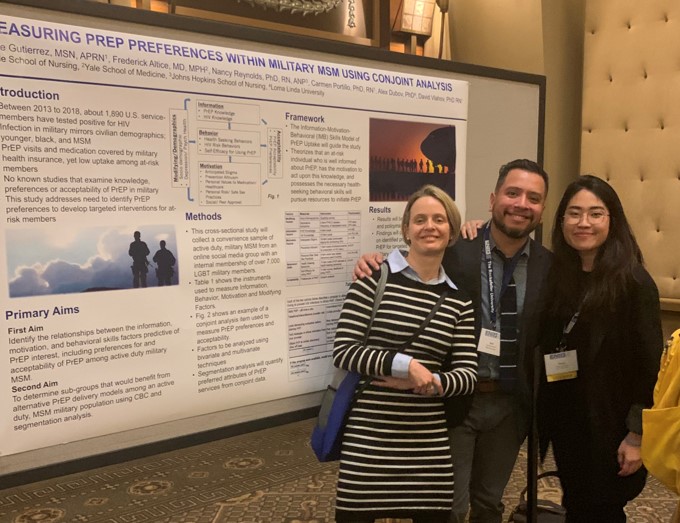
Meet the Students

Focus on Clinical Research
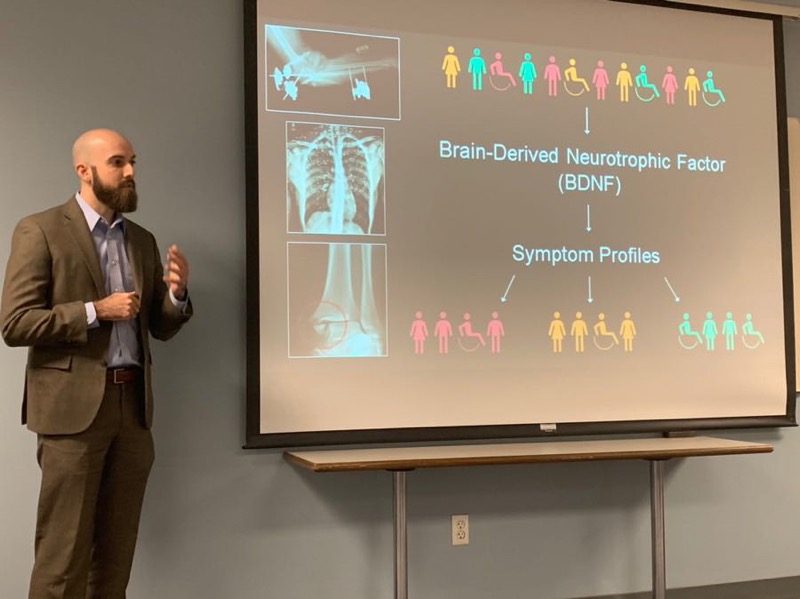
Experience Yale

World Renowned Faculty
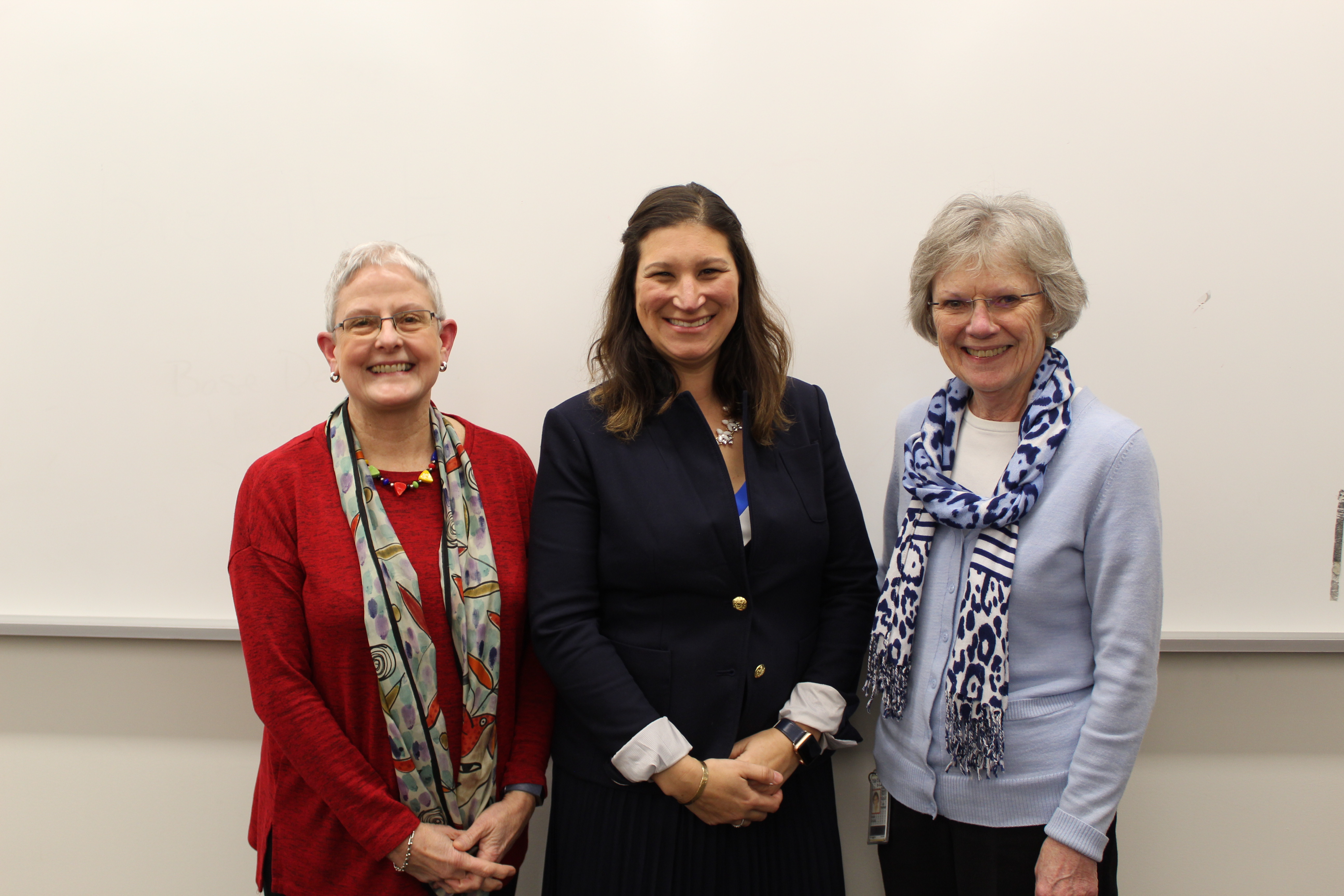
How to Apply

- Home / Academics / PhD in Nursing
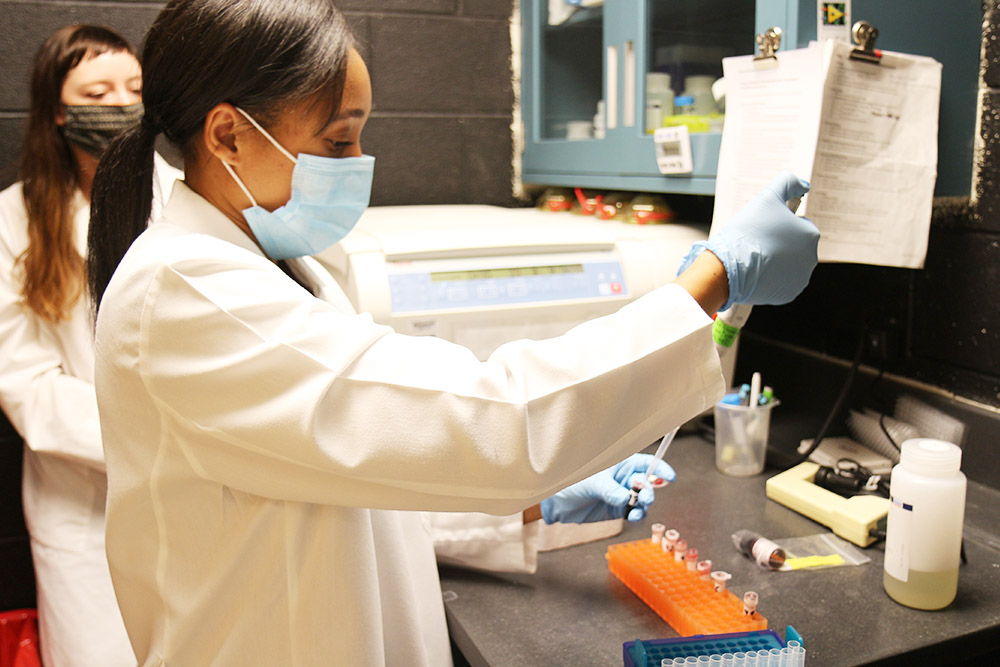
Doctor of Philosophy in Nursing (PhD)
Our PhD in nursing offers students a chance to become nurse scientists, nursing professors, and nurse policy- and change-makers.
- World-class scholar-mentors exploring a rich variety of research
- 4 years' free tuition + generous annual stipends for ALL admitted students
- Powerful development of students' grant and scholarly writing , and ample opportunities and funding to present at major conferences
- Loan forgiveness programs if pursuing full-time careers in academia
- Deadline to apply: December 15 (for entry the following fall)
The PhD in Nursing is administered by the School of Nursing, but the degree is conferred by the Graduate School of Arts & Sciences (GSAS). Therefore, applicants will complete the application through GSAS. Please review this detailed information about the application process and admission requirements .
[VIDEO] Discover the PhD in Nursing
Download the video file .
The PhD in nursing program prepares students for careers as scholars, nurse scientists., and academics ready to contribute to nursing science, knowledge, theory, and practice through systematic inquiry. By graduation, PhD in nursing students will:
- demonstrate advanced knowledge of nursing, related sciences and humanities, and methods of inquiry
- expand the research base of nursing theory and practice
- serve the Commonwealth, the nation, and the world by addressing major nursing and healthcare issues through research and in a scholarly manner
All applicants for the PhD must possess a BSN. Many also possess an MSN and nurses with other graduate degrees (MPH, MBA, MS in Health Administration, etc.) are also encouraged to apply.
Every year, UVA PhD nursing students earn grants to support their doctoral studies, and many publish and present around Virginia, the U.S., and internationally.
UVA's PhD in nursing program is focused on research, and the curriculum includes courses in qualitative, quantitative, and historical research. Over the course of the program, all PhD students submit a research proposal for peer review, and many submit proposals to the NIHNR's annual service awards competition.
Because research is such a critical element of the PhD program, we seek to admit students whose scholarly interests are congruent with those of our faculty. A list of faculty eligible to chair PhD student committees is available on the Faculty Directory page .
PhD in Nursing Admission Requirements
To be considered for the PhD program, applicants must:
- Submit a completed application to the Graduate School of Arts & Sciences (not the School of Nursing) and pay an $85 application fee
- Have at least a baccalaureate degree in nursing from a nationally accredited program and a minimum "B" average
- Submit transcripts for all post-secondary work
- Submit three letters of reference that speak to the applicant's ability to pursue doctoral studies (two must be from doctorally-prepared nurse educators and one may be from a current or recent employer)
- Submit a CV reflecting professional achievements and productivity
- Submit an essay (1,000 words or fewer) describing the applicant's educational, research, and professional goals, including a specific description of the planned focus of study and a researchable topic for development
- Have completed a recent course in statistics (with software applications)
- Be available for an interview with one or more faculty members (conducted in Charlottesville or via Zoom as needed)
- International applicants have additional requirements
- The Graduate Record Exam (GRE) is no longer required to apply to the PhD program; however, the option remains for applicants to provide scores as part of the application. The institutional code for UVA is R-5820 .
Statistics Prerequisite
One option is to complete Courses 1-3 of this series: https://www.coursera.org/specializations/statistical-analysis-r-public-health . Please note that the certificate showing successful completion of the course is required. The student needs to choose the paid option to receive the certificate. This is one example; please contact [email protected] if you have questions.
Steps to Apply for the PhD in Nursing
Those interested in applying to the PhD in nursing program apply through UVA's Graduate School of Arts and Sciences (GSAS), which prefers to receive one package containing all supporting materials (recommendations, transcripts and scholarly writing). The completed application, the application fee and all supporting data must be received no later than December 15.
Financial Aid for PhD in Nursing Students
Graduate teaching assistant (gta) positions.
- All admitted students to the PhD program are eligible to be awarded four years of scholarship to cover tuition, insurance, and fees, in exchange for serving as a GTA 10 hours per week.
- See the Financial Aid page for more information.
Loan Programs for Future Nursing Faculty
- The school also offers financial support programs to students considering full-time faculty positions through the Nurse Faculty Loan Program and the Virginia Nurse Faculty Loan. Through the Nurse Faculty Loan Program, funded by HRSA, doctoral students may borrow funds for their academic expenses (tuition and books). If they become a full-time faculty member at any accredited institution, up to 85% of the loan (principal and interest) is forgiven.
- Doctoral students enrolled in UVA’s PhD or DNP programs who are planning on teaching full-time in Virginia can apply to the Virginia Nurse Faculty Loan. Students may be eligible to borrow up to $25,000 per year during the coursework phase of their programs. This loans is eligible for cancelation if graduates go on to teach full-time at any public or private nursing education program in Virginia for four years.
Visit our Tuition and Financial Aid web pages for more information.
Plans of Study for the PhD in Nursing
Please see a suggested Nursing PhD Plan of Study .
Please visit the Graduate Record for the official program requirements for the Doctor of Philosophy in Nursing.

Doctoral – PhD in Nursing

About the Program
Georgetown’s PhD in Nursing Program is designed to be a full-time, campus-based, premier doctoral program for individuals who want to be leaders for change by seeking to advance the discipline and those they serve in academic, community health, health care, policy, global, and research settings.
Georgetown’s PhD program will lead in creating nurse scientists who generate knowledge with ethics and health equity as its core compass, to advance health, appreciating our shared humanity. Roberta Waite , Dean of Georgetown University School of Nursin g
Program Features
- Draws upon the interdisciplinary and intellectual richness of the campus community
- Develops leaders for change in nursing
- Focus in ethics and health equity
- Intellectual vibrancy with renowned faculty across multiple disciplines
- Globally known, values-based academic community
- Intellectual vibrancy across complimentary academic disciplines such as ethics, law, philosophy, medicine, and policy.
- Full-time, campus-based program
Program Virtual Information Sessions
Register below to attend a virtual information session featuring a formal presentation by the Program Director, Admissions Director and a School of Nursing faculty member. During the online information session webinar presentation, we will give a detailed overview of the Ph.D. in Nursing program features, curriculum and application procedure. The Fall 2025 entry application cycle will open in mid-July.
- Thursday, August 22, 7:00 – 8:00 p.m. , featuring Dr. Intima Alrimawi and Dr. Edilma Yearwood. Register here to attend .
- Tuesday, September 10, 12:00 – 1:00 p.m. , featuring Dr. Liz Stokes and Dr. Edilma Yearwood. Register here to attend .
- Wednesday, October 16, 12:00 – 1:00 p.m. , featuring Dr. Carol Taylor and Dr. Edilma Yearwood. Register here to attend .
- Thursday, November 7, 7:00 – 8:00 p.m. , featuring Dr. Ella Heitzler and Dr. Edilma Yearwood. Register here to attend .

Program Questions
Please direct questions about the PhD in Nursing program to [email protected] .
Program Leadership
Edilma L. Yearwood, PhD, PMHCNS-BC, FAAN Interim Program Director, PhD in Nursing Program
- Faculty & Staff

School of Nursing
- Meet the Dean
- GW Nursing at a Glance
- Administration
- Diversity, Equity and Inclusion
- Health Workforce Institute
- Where We Are
- Accreditation
- Bachelor of Science in Nursing
- Master of Science in Nursing
- Doctor of Nursing Practice (DNP)
- Certificates
- PhD in Nursing
- Health Care Prerequisites
- Simulation Professional Development and Practice
- Open Educational Resources
- Clinical Placement Model
- How to Apply
- Admissions Events
- Information for Veterans
- International Student Requirements
- Request Information
- Student Right to Know
- Transferring Credits
- Admitted Students
- Financial Aid
Frequently Asked Questions
- State Authorizations
- Center for Aging, Health and Humanities
- Center for Health Policy and Media Engagement
- Community Engagement Initiatives (CEI)
- Partnerships
- Student Success Resource Hub
- Academic Calendar
- Student Groups
- Milestone Events
- News Archive
- Event Calendar

PhD: Doctor of Philosophy in Nursing
Earn a GW Nursing Doctor of Philosophy in Nursing to advance the theoretical foundation of healthcare delivery and nursing practice. Our PhD program is designed to equip graduates with the knowledge and skills in theoretical, methodological, and analytical approaches needed to conduct research and apply knowledge in the fields of nursing science and healthcare.
At GW Nursing, our students have access to world-renowned nursing faculty with research programs centered on addressing issues that contribute to inequity. . Our research faculty conducts clinical, community, health services, and educational research, underpinned by our commitment to health equity. They work closely with students to ensure that they have the necessary skills to build a program of research with high potential for impact on health and educational outcomes. Graduates of our PhD program will be prepared to:
Implement theoretical and methodological approaches required for discovery science
Assume high level faculty positions within a university, apply for post-doctoral research fellowships at universities or agencies, influence nursing-related policy, education, and scientific discovery, our hybrid curriculum.
Our program is a hybrid format that combines carefully developed on-campus, learning-intensive weekends with weekly online learning experiences. Through our cutting-edge facilities at our Simulation and Innovation Learning Center, and award-winning online technology courses, students can develop the skills needed to design and implement scientific research programs and kickstart their careers.
Want To Learn More About The Program?
Questions about our PhD program should be directed to the program director, Laurie Theeke at [email protected] . We offer info sessions periodically throughout the year. During each session, we cover the admissions basics, tips on funding your education, why you should choose GW, and offer the opportunity to ask questions of faculty and admissions staff. View our upcoming info sessions.
REQUEST INFO
COSTS & AID
Hear From Our Faculty & Students
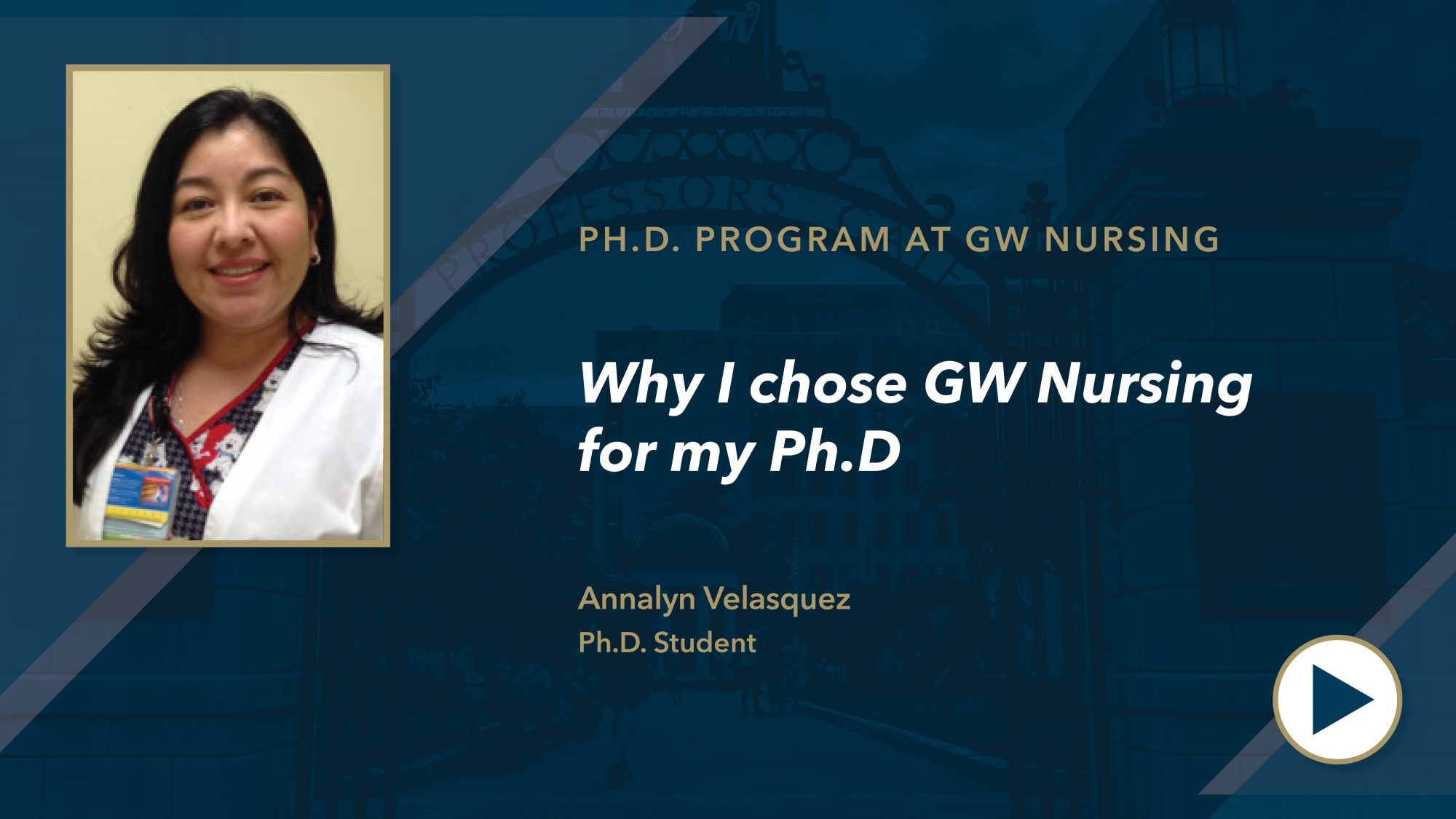
Application Deadlines
Application Open: 10/03/23 — Priority: 12/01/23 Release Date: Rolling — Final: 02/15/24 Release Date: Rolling
About the Program
- Faculty Research Areas
- Prerequisites
The Doctor of Philosophy in Nursing program consists of 57 credit hours.
Programs of Study
- PhD Program of Study - Full Time
- PhD Program of Study - Part Time
For full listing of courses and descriptions, please visit the University Bulletin .
On-Campus Requirements
You will be required on GW campus to attend Orientation the summer before year 1, as well as Friday/Saturday weekend intensives on each semester of years 1, 2 and 3..
Technology Requirements
Each student admitted to the program is expected to own and have ready access to a laptop or tablet with basic productivity software for classroom use. View Policy .
Competitive applicants will be offered admission first. Applicants are encouraged to apply early, as space is limited.
Complete applications submitted by the priority deadline will be reviewed first. Applications do not have to be verified by the priority deadline, only completed and submitted. Completed applications received after the priority deadline are reviewed solely on a space-available basis.
Students working more than 20 hours per week will be considered for the part-time program of study only.
A completed application includes the following components:
- Active and unencumbered RN License
- Master's degree in nursing or related field
- Three letters of recommendation
- Current resumé
- Statement of Purpose (addressing research and potential GW research mentors)
- Writing sample (published article or graded academic paper)
- Score > 100 TOEFL (international applicants)
Graduate-level inferential statistics course taken within the past five years *
*NURS 6208: Biostatistics for Health Care Research (3) is offered in the spring and summer for those who have not met this requirement
Admission Selection Criteria:
- 3.0 (on 4.0 scale) preferred Masters GPA
- Candidate Interview
- Candidate Essay
Contact the Office of Admissions at [email protected]
At the conclusion of the PhD program, you will be able to:
- Evaluate, critique, and synthesize knowledge from nursing and other academic disciplines to generate new ideas.
- Examine diverse modes of inquiry to select the appropriate design to conduct research that builds on nursing science and theory.
- Integrate team science principles in the conduct of research with interdisciplinary teams.
- Demonstrate scientific integrity and the protection of human subjects in the design, conduct and analysis of research studies.
- Apply theory-base approaches and philosophic perspectives from nursing and healthcare research.
- Disseminate knowledge through publications and presentations.
- Employ strategic leadership skills to advance the profession, influence policy, and the conduct of research.
- Explore our Faculty
- Explore our Research
Scholarship funding is available to select applicants. Students eligible for scholarship funding must be enrolled full-time, must agree to work no more than 20 hours a week while enrolled, must be continuously enrolled, and must maximize any employer tuition benefits first.
For students who have access to tuition assistance from their employers, GW tuition awards cannot be used in lieu of such assistance.
Students who apply before the priority deadline will receive preferential scholarship consideration and will be notified about funding status 2-4 weeks after acceptance into the Ph.D. program.
- Funding is reviewed and awarded annually
- Employer tuition benefit documentation is required and will be reviewed during the time of acceptance.

Home / Getting Your Ph.D. in Nursing
Getting Your Ph.D. in Nursing
Becoming a ph.d. nurse, what does a ph.d. nurse do, ph.d. nurse salary & employment, ph.d. vs. dnp in nursing, helpful organizations, societies, and agencies.

What Is a Ph.D. Nurse?
A Ph.D. nurse is one who has completed a Doctor of Philosophy in Nursing degree. A Ph.D., or doctoral degree, is the highest level of education a nurse can achieve. Different from a Doctor of Nursing Practice (DNP) degree, which focuses on advanced clinical practice, a Ph.D. in Nursing program is a research and science-focused degree that prepares nurses for careers conducting important medical research that will advance the entire nursing profession and for teaching nursing at the college level.
In order to become a Ph.D. nurse, of course, nurses must complete a Ph.D. in nursing program, which generally takes 4 to 6 years to finish. An aspiring Ph.D. nurse must have a strong interest in conducting medical research and/or teaching future nurses. Strong leadership skills are also important, as many Ph.D. nurses go on to supervise and mentor other nurses, whether they work in scientific research, management, or teaching capacity.
What Are the Educational Requirements For a Ph.D. Nurse Program?
A Ph.D. in Nursing program is known as a terminal degree, meaning it is the highest level of education for the nursing profession (in addition to the DNP degree, another separate nursing doctorate program track). Prior to entering a Ph.D. program, nurses must complete a Bachelor of Science in Nursing (BSN) degree and pass the NCLEX-RN exam. In some cases, applicants to a Ph.D. in Nursing program must also complete a Master of Science in Nursing (MSN) degree, which provides advanced education in nursing practice with courses in pharmacology, pathophysiology, and clinical practice.
Educational Prerequisites
Specific requirements to complete a Ph.D. in Nursing program will vary slightly from school to school. Schools offer Ph.D. in Nursing programs in traditional classroom formats, as well as online and hybrid styles that combine in-person study with online coursework. In addition to a variety of formats for Ph.D. in Nursing programs, students can also sometimes opt to take these programs on a full-time or part-time basis to suit their personal schedules.
The curriculum for a Ph.D. in Nursing program is research-focused, with coursework in advanced scientific research principles, data analysis, and statistical measurement. Ph.D. programs generally culminate in a dissertation and original research project. As an example of Ph.D. curriculum, below is a selection of courses offered by the Medical University of South Carolina as part of their online Ph.D. in Nursing Science program:
- Advanced Quantitative Research Methods
- Qualitative Research Methods
- Advanced Statistical Methods for Nursing Research
- Advanced Study Design and Methods
- Advanced Health Policy & Advocacy
- Research Team Leadership
A Ph.D. nurse conducts scientific research that advances the nursing profession. The knowledge that Ph.D. nurses gather and present as a part of their scientific research powers positive change in the quality of patient care and outcomes in the entire nursing field. In addition to their role as nurse scientists, Ph.D. nurses also teach and mentor nurses at the college/university level, working to shape the next generation of nurses.
What Are the Roles and Duties of a Ph.D. Nurse?
The majority of Ph.D. nurses pursue careers in either the research or teaching fields, so their day-to-day duties will vary depending on which career track they have chosen.
For a nurse researcher , typical duties may include:
- Identify research questions, and design and conduct scientific research in partnership with other scientists from various fields
- Collect and analyze scientific data and publish reports detailing findings
- Write proposals and apply for grants to help fund their research
- Establish and maintain quality assurance programs to ensure the validity of their data findings
- Train and supervise laboratory staff and other nurses or scientists
For a Ph.D. nurse educator who has chosen to pursue a faculty position, typical duties may include:
- Plan, prepare, and revise curriculum and study materials for nursing courses
- Deliver lectures to undergraduate and graduate level nursing students
- Supervise students' laboratory and clinical work
- Grade students' classwork, laboratory, and clinical performance
- Mentor and advise students regarding their future work in the nursing industry
For faculty members who pursue department chair or administration roles, additional duties may include:
- Hire, supervise and conduct performance reviews of faculty members
- Assist with the scheduling of classes and professors
- Oversee department curriculum and provide quality control as to the content and materials of given nursing courses
Workplace Settings
A Ph.D. nurse can work in a variety of settings, depending on the career path he or she has chosen. A Ph.D. nurse may find employment at a hospital, medical laboratory, research facility, or university as a research scientist, or may work at a nursing school, college, or university as a faculty member or department chair. In some cases, a Ph.D. nurse may also work as a public health nurse in a government setting, helping to develop research-based solutions to public health issues.
Salaries for Ph.D. nurses vary based on the type of employment a nurse seeks after graduation. Nurse researchers, a primary career path for Ph.D. nurses, can expect a median salary of $90,000 according to Payscale.com. For Ph.D. nurses who pursue a teaching position, the median annual wage for post-secondary nursing instructors is $77,440 according to the U.S. Bureau of Labor Statistics as of May 2021. Geographical location, career length, and experience level are all factors that can influence a Ph.D. nurse's annual salary.
The nursing profession as a whole has a particularly bright employment outlook, with the employment of registered nurses projected to grow 9 percent from 2020 to 2030 according to the BLS. In addition, a large number of healthcare facilities are looking for nursing professionals with higher degrees, which means the demand for Ph.D. and DNP level nurses will continue to grow. In fact, the Institute of Medicine 's 2015 "The Future of Nursing Report" emphasized the need for more Ph.D. level nurses.
As there are two doctorate-level nursing program types to choose from, there may be some confusion as to the differences between a Ph.D. nursing program and a Doctor of Nursing Practice (DNP) degree. The primary difference between the two programs relates to nurses' career aspirations. A DNP program trains nurses to perform the highest level of nursing practice and to translate research into high-quality patient care, while a Ph.D. program prepares nurses to conduct cutting-edge research that will advance the science of nursing and patient care. In addition to research positions, a Ph.D. program prepares nurses for leadership and teaching positions at hospitals and colleges/universities. To simplify, a DNP is a nursing practice doctorate degree, while a Ph.D. is a research and teaching doctorate.
Other key differences between DNP and Ph.D. programs are curriculum and program length. A typical DNP program includes courses on advanced nursing practice, leadership, and management topics and requires patient care clinical hours as well as a final capstone project. A Ph.D. program includes coursework on research methodologies, data analysis, and healthcare leadership and policy, and requires students to complete original research and a dissertation. In general, a Ph.D. program takes longer to complete than a DNP program, with Ph.D. programs taking an average of 4 to 6 years to complete and a DNP program taking 3 to 4 years, but can be completed in as little as 2 years depending on the school and program chosen.
- American Association of Colleges of Nursing
- American Nurses Association
- International Association of Clinical Research Nurses
- National Institute of Nursing Research

PhD Education
Find Programs
There is no doubt that education is the path for a nurse to achieve greater clinical expertise. At the same time, however, the nursing profession needs more nurses educated at the doctoral level to replenish the supply of faculty and researchers. The national shortage of faculty will soon reach critical proportions, having a significant impact on educational programs and their capacity to educate future generations of nursing students.
Although the number of doctorate programs has continued to increase, the total enrollment of students in these programs has remained fairly constant, resulting in a shortage of newly minted PhDs to renew faculty ranks. As a result, approximately 50% of nursing faculty possess the doctorate as a terminal degree. Furthermore, with many advances being made in the treatment of chronic illnesses, there is a continuing need for research that assists patients in living with their illness. This research requires individual investigators who are prepared on the doctoral level.
One reason there is a lack of nurses prepared at the doctoral level is that, compared with other professions, nurses have more interruptions in their careers. Many in the profession are females who work as nurses while fulfilling responsibilities as wives and mothers. As a result, many pursue their education on a part-time basis. Also, the nursing profession traditionally has viewed clinical experience as being a prerequisite to graduate education. This career path results in fewer individuals completing the doctorate at an earlier stage in their career, thereby truncating their productivity as academics, researchers, and administrators. To reverse this trend, many nursing schools have developed programs that admit students into graduate (doctorate and master's) programs directly from their undergraduate or master's programs.
Nursing Research
When nurses do research for their doctorates, many people tend to think that it focuses primarily on nurses and nursing care. In reality, nurses carry out clinical research in a variety of areas, such as diabetes care, cancer care, and eating disorders.
In the last thirty years, advances in medicine have involved, for the most part, advancing treatment not cures. In other words, no cure for the illness has been discovered, but treatment for that illness has improved. However, sometimes the treatment itself causes problems for patients, such as the unwelcome side effects of chemotherapy. Nurses have opportunities to devise solutions to problems like these through research, such as studies on how to manage the illness and its treatment, thereby allowing individuals to lead happy and productive lives.
The Curricula
Doctoral programs in nursing are aimed at preparing students for careers in health administration, education, clinical research, and advanced clinical practice. Basically, doctoral programs prepare nurses to be experts within the profession, prepared to assume leadership roles in a variety of academic and clinical settings, course work and research, students are trained as researchers and scholars to tackle complex health-care questions. Program emphasis may vary from a focus on health education to a concentration on policy research. The majority of doctoral programs confer the Doctor of Philosophy (PhD) degree, but some award the Doctor of Nursing Science (DNS), and the Doctor of Education (EdD).
Doctoral nursing programs traditionally offer courses on the history and philosophy of nursing and the development and testing of nursing and other healthcare techniques, as well as the social, economic, political, and ethical issues important to the field. Data management and research methodology are also areas of instruction. Students are expected to work individually on research projects and complete a dissertation.
Doctoral programs allow study on a full- or part-time basis. For graduate students who are employed and therefore seek flexibility in their schedules, many programs offer courses on weekends and in the evenings.
Admission Requirements
Admission requirements for doctoral programs vary. Generally, a master's degree is necessary, but in some schools a master's degree is completed in conjunction with fulfillment of the doctoral degree requirements. Standard requirements include an RN license, Graduate Record Examinations (GRE) scores, college transcripts, letters of recommendation, and an essay. Students applying for doctoral-level study should have a solid foundation in nursing and an interest in research. Programs are usually the equivalent of three to five years of full-time study.
Selecting a Doctoral Program
Selecting a doctoral program comes down to personal choice. Students work closely with professors, and, thus, the support and mentoring you receive while pursuing your degree is as vital as the quality of the facilities. The most important question is whether there is a "match" between your research interest and faculty research. Many of the same questions you would ask about baccalaureate and master's degree programs apply to doctoral programs. However, in a doctoral program, the contact with professors, the use of research equipment and facilities, and the program's flexibility in allowing you to choose your course of study are critical.
Some questions to consider asking include: Are there opportunities to present research findings at professional meetings? Is scholarship of faculty, alumni, and students presented at regional and national nursing meetings and subsequently published? Has the body of research done at a university enhanced the knowledge of nursing and health care?
Other questions to consider include: Does the university consider research a priority? Does the university have adequate funding for student research? Many nurses with doctorate degrees make the natural transition into an academic career, but there are many other career options available for nurses prepared at this level. For example, nurses prepared at the doctoral level are often hired by large consulting firms to work with others in designing solutions to health-care delivery problems. Others are hired by large hospital chains to manage various divisions, and some nurses with doctorate degrees are hired to manage complex healthcare systems at the executive level. On another front, they conduct research and formulate national and international healthcare policy. In short, because of the high level of education and a shortage of nurses prepared at this level, there are a number of options.
Salaries are related to the various positions. Faculty salaries vary by the type of institution and by faculty rank, typically ranging from approximately $80,000 at the assistant professor level to over $115,000 at the professor level. Salaries of nurse executives also vary, with the lowest salaries being in small rural hospitals and the highest being in complex university medical centers. Consultant salaries are wide ranging but often consist of a base plus some percentage of work contracted. Clinical and research positions vary considerably by the type of institution and the nature of the work. Needless to say, a doctoral education does provide individuals with a wide range of opportunities, with salaries commensurate with the type and level of responsibilities.
- Partnerships
Doctor of Philosophy in Nursing (PhD)
YOU ARE BOUVÉ

Advance the science of nursing through innovation and interdisciplinary inquiry .
The PhD in Nursing program at Northeastern University prepares future nurse-scientists to advance nursing through innovation and interdisciplinary inquiry to improve the health of individuals and communities. Graduates are expected to lead research initiatives that advance nursing science through knowledge development and interdisciplinary scholarly inquiry.
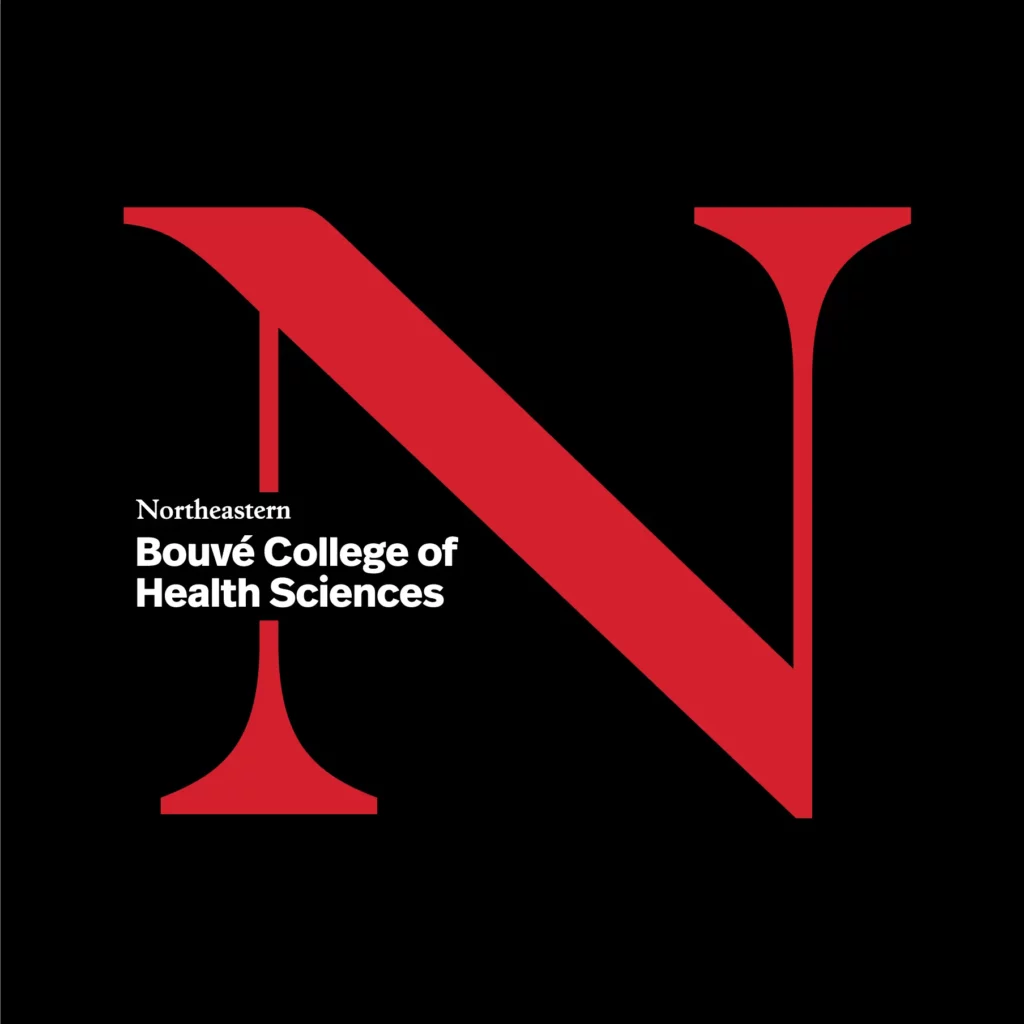
Students will study with nursing faculty who collectively have a variety of expertise and interests and whose research addresses questions that extend across a broad health spectrum.
In addition, students have an opportunity to study with faculty from other Northeastern departments, as well as with other Boston-area researchers. This collaboration allows students to work across disciplines and to access populations and sites essential for completing a dissertation
Degree: Nursing PhD Application deadline: June 1 GRE: Required Study options: Full-time/part-time
Please Note: PhD students in the Bouvé College of Health Sciences may not request enrollment deferrals. If you are admitted for a given term but wish to be considered for a future term instead, you must re-apply to the program in order to be considered for admission and funding.

Video: Chelsea Kirker, MSN, CRNA describes why she is doing a PhD at Northeastern
Chelsea Kirker, MSN, CRNA describes why she is doing a PhD at Northeastern
Post-master’s students (also referred to as Advanced Entry) will build on their prior degrees and clinical foundations by completing 48 semester hours , including the dissertation.
Post-baccalaureate students will complete 60 semester hours , including the dissertation.
On a full-time basis, students entering with a master’s degree can expect to commit a minimum of three years to completing the program; if entering with a bachelor’s degree, a minimum of four years. Both full- and part-time options are available to all students. Course descriptions can be found in the PhD Handbook.
Graduates are expected to lead multidisciplinary research initiatives that advance nursing and health care through knowledge development and interdisciplinary scholarly inquiry. Students will work with nursing faculty whose research address innovative questions that seek to advance knowledge for improvement of care. In addition, students will have an opportunity to collaborate with faculty across the broader Northeastern University community in addition to Boston area research and healthcare institutions. This collaboration allows students to work across disciplines and to access populations and research sites essential to the success of their original dissertation study.
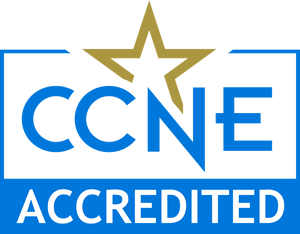
The Baccalaureate, Master’s and Doctor of Nursing Practice programs at Northeastern University School of Nursing are accredited by the Commission on Collegiate Nursing Education , 655 K Street, NW, Suite 750, Washington, DC 20001, 202-887-6791
Handbooks and Manuals
Sample curriculum.
Sample curriculum, subject to change.
Prerequisites
Both post-BSN and post-MSN students are expected to show satisfactory completion of a basic statistics course . Note: Post-BSN students will be required to take an epidemiology course as part of their PhD coursework.

Full-time Sample Curriculum
Research core.
8 courses, 3 credits each unless otherwise noted — 22 credits
NRSG 7700 Science of Nursing
NRSG 7705 Theoretical and Conceptual Foundations in Nursing Science
NRSG 7709 Qualitative Research Methods
NRSG 7712 Quantitative Research Methods
NRSG 7715 Measurement in Clinical Research
NRSG 7750 Health Care of Urban Populations
NRSG 7770 Research Colloquium (1 credit)
NRSG 7755 Intervention Research: Development, Implementation, and Evaluation
Research Practicum
2 courses, 1-4 credits each · 6 credits
NRSG 9984 Students are required to complete 6 credits of supervised research practicum with a seasoned researcher. The purpose of the practicum is to develop student research skills through engagement with an active research project. Students must have a viable MA RN license. Research practicum activities vary and may include any or all of the following aspects of the research process:
- Assisting/conducting critical literature reviews
- Developing proposals
- Developing human subjects guidelines
- Recruiting and consenting participants
- Collecting data
- Managing data
- Analyzing data
- Developing presentations
- Writing scholarly research paper(s)
Post-Bac Required Courses
In addition, post-baccalaureate students are required to take:
NRSG 5121 Epidemiology and Population Health
NRSG 7104 Foundations in Nursing Research (3
2 Elective Courses (6 credits)
Electives may be taken in nursing or in an area related to the student’s dissertation research, including appropriate methodology and statistics courses.
2 courses, 3 credits each · 6 credits
Cognates are courses that are taken outside the School of Nursing and should provide depth and breadth to the student’s phenomenon of interest.
PHTH 5210 Biostatistics
PHTH 6210 Applied Regression Analysis
Dissertation
4 courses, 3 credits each unless otherwise noted · 8 credits total
NRSG 9845 Dissertation Seminar 1
NRSG 9846 Dissertation Seminar 2
NRSG 9990/9991 Dissertation
Admissions Requirements
*Note: A Massachusetts RN license is required by matriculation in the PhD program in order to do the research practicum component of the program. If you are a registered nurse, you may enter the PhD program after completing a baccalaureate or a master’s degree. A degree in nursing is preferred.
To apply to the PhD in Nursing you will need the following:
Current U.S. RN License *
Minimum GPA of 3.0
Official transcript(s) of ALL college-level study-to-date resume
Personal statement indicating applicant’s personal goals for obtaining a DNP and expectations of the program
A minimum GRE of 300 or equivalent for the verbal and quantitative combined, should be taken within the last five years
Three letters of recommendation that address your potential in a career in nursing research
Satisfactory completion of a basic statistics course
Personal Statement describing your goals, your reason for pursuing a PhD in nursing and your research area of interest
For international applicants TOEFL scores or IELTS scores
Got questions?
Amanda Choflet, DNP, RN, NEA-BC 617-373-3488 [email protected]
Graduate Admissions 617-373-2708
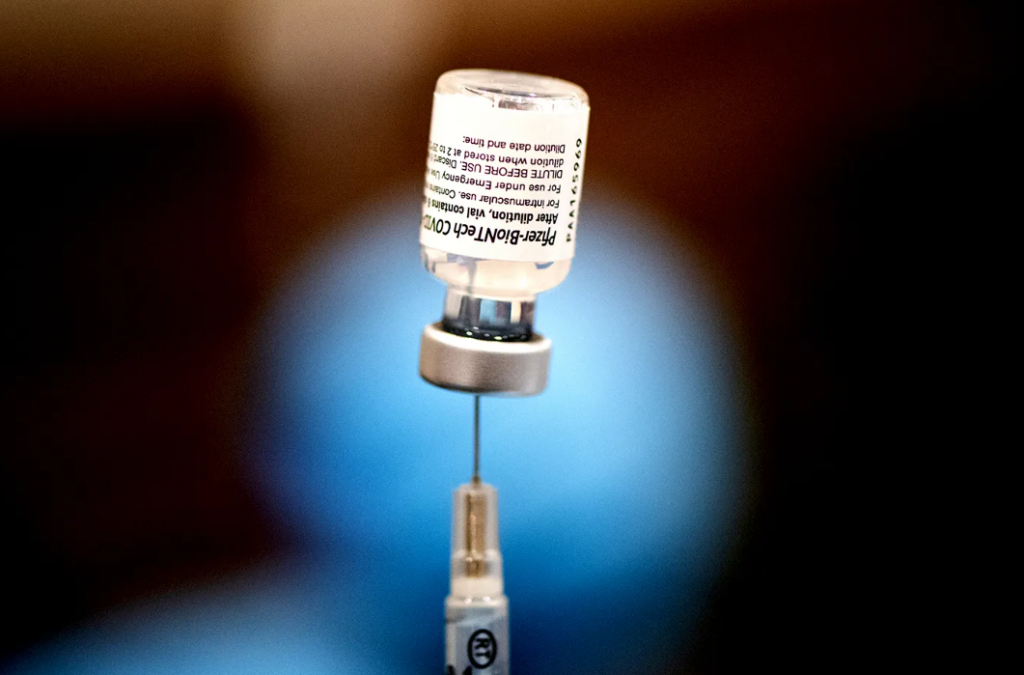
Past PhD Dissertation Topics
Utilization of the Pain Catastrophizing Scale for Postoperative Pain in Anesthesia Chris Gill
Understanding college students’ motivations for the use and discontinued use of fitness related technology in relation to their physical activity behaviors Jessica Wallar
Experiences of School Nurses Caring for Newly Arrived Immigrant and Refugee Children Jacqueline Brady
An Exploration of the Influence of Stigma and Trauma in the Illness Representations of those Veterans who Decided to Initiate Treatment for Hepatitis C Virus Casey Garvey
Toward an Understanding of Suicidal Ideation Among Career Firefighters Elizabeth Henderson
Mold Exposure Levels in Inner-City Schools and Homes: An Examination of the Relationship Between Fungal Exposure and the Prevalence Rate of Asthmatic Symptoms Among Children Ages 5 to 15 Evin Howard
New-onset Delirium among Elderly Acute Care Orthopedic Trauma Patients: Sleep Disturbance and Nutritional Status as Modifiable Risk Factors Susan Maher
Stress, Resilience and Reintigration Among Post-9/11 US Veterans: A Holistic Investigation Anna Etchin
Exploring the Issues of HIV Post Exposure Prophylaxis and Sexually Assaulted Individuals Meredith Scannell
Charting the Path from Diagnosis to Treatment: A Grounded Theory Study of Ovarian Cancer Rachel Pozzar
Frequently Asked Quesions
What’s the difference between the dnp and phd programs.
Northeastern offers two different doctoral degrees in nursing: the Doctor of Philosophy (PhD) and Doctor of Nursing Practice (DNP). The PhD is a research-oriented degree, while the DNP is practice-oriented. Nurses interested in leadership might be interested in the DNP, whereas those interested in becoming nurse scientists would be a good fit for the PhD program.
What financial support is available for students?
A select number of competitive Graduate Assistantships are available for doctoral students. Graduate Assistantships cover tuition and include a stipend in exchange for working 20 hours/week as a research or teaching assistant.
NOTE: Graduate Assistantships are awarded each academic year.
Can I transfer credits towards the program ?
You may be able to transfer in up to 9 credits that have not been previously used towards another degree and were taken at the graduate level for a grade of B or better. Students must receive approval from the program director prior to transferring courses and must be enrolled in the program in order to begin the transfer process.
More information about Northeastern University’s transfer policy can be found in the Bouve Transfer Policy.
Can I attend the program on a part-time basis ?
Full-time or part-time enrollment is available. Students who attend full-time complete the degree in five continuous semesters (21 months).
Students who attend part-time usually complete the degree in three years . Students must consult with the financial aid office to assure PT status is acceptable for loan eligibility . All students (full-time or part-time) must take the NRSG7100 Leadership in Advanced Nursing Practice course as the first course which is offered in the Fall.
Can I speak with faculty in the PhD program that share my research interests ?
Yes, we would be happy to put you in touch with our faculty. Please send your query along with a description of research interests so that you can be appropriately matched to:
Dr. Rhonda Board Program Director [email protected]

Connect with us
Have more questions about Bouvé? We’re here to help.
Want to take the next step and start your journey at Bouvé?
Request more information
Interested in learning more about what Bouvé has to offer?
Ohio State nav bar
The Ohio State University
- BuckeyeLink
- Find People
- Search Ohio State
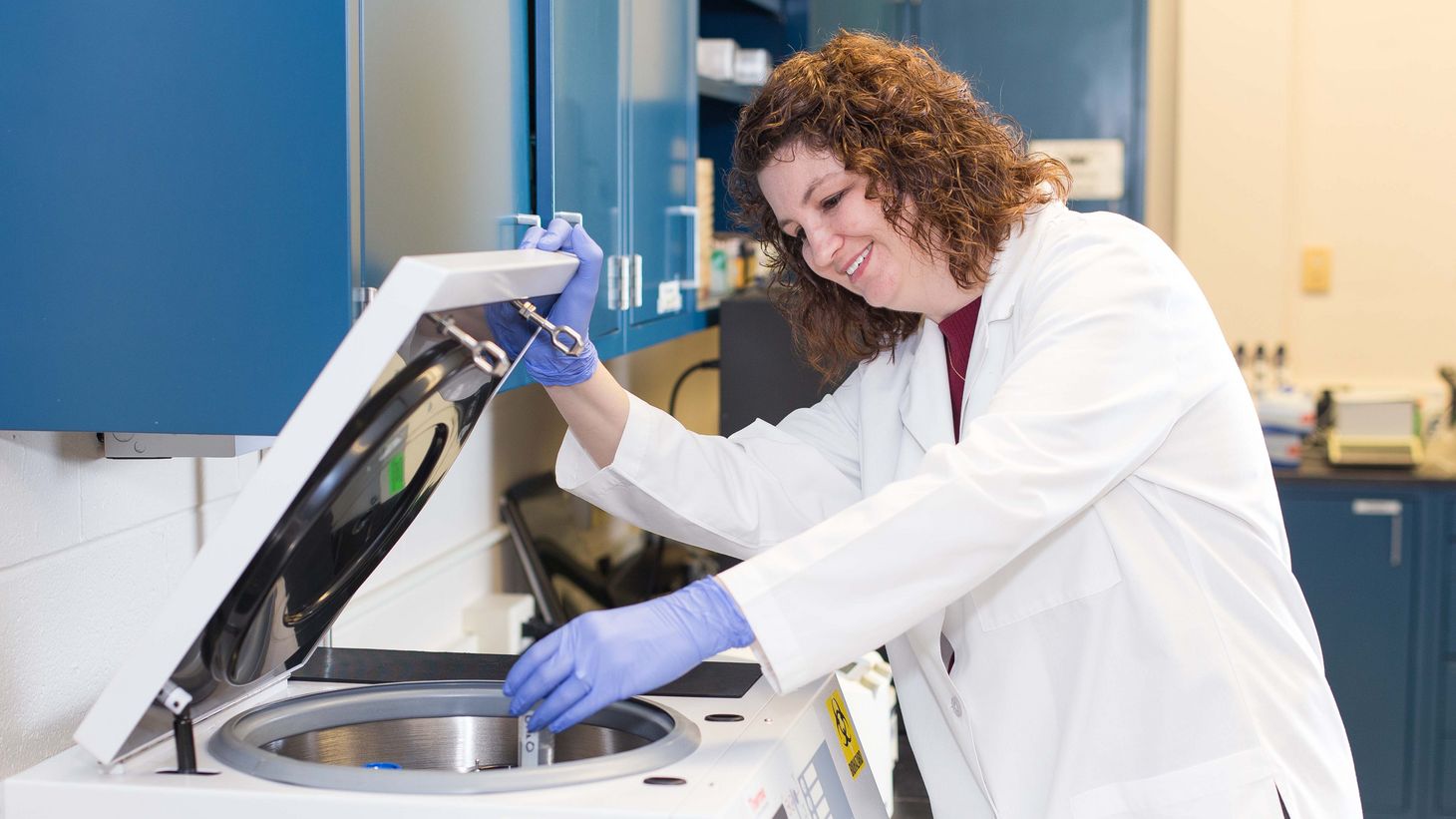
Doctor of Philosophy (PhD)
Join us in our pursuit of knowledge that will transform the nursing profession..
Admissions | Curriculum | Tuition | Student Funding | Research | FAQs | Information Sessions
We've all known the joy of helping a patient return to good health. It's a rewarding feeling. Now imagine the feeling of knowing the outcome of your work helped thousands of patients achieve their optimal health. That's the opportunity that exists for nurses who earn their PhD.
It is estimated that of the nearly 2.7 million registered nurses in the United States today, fewer than 10 percent have an advanced degree and fewer than 1 percent have a PhD. With a PhD, you have the opportunity to contribute to the nursing and health care as a scientist and scholar. The Doctor of Philosophy (PhD) in Nursing program at The Ohio State University College of Nursing provides you with the opportunity to transform healthcare and the nursing profession while studying alongside expert scholars .
In The Ohio State University College of Nursing PhD program, mentorship of students focuses on the development of skills in original research and the completion of a dissertation. The PhD program in the College of Nursing prepares nurse scientists to advance knowledge on health determinants, which includes the array of personal, biology, social, economic, and environmental factors that affect health, through transdisciplinary research and team science. Our program emphasizes collegial relationships between expert and developing scholars with regard to research, grant writing, and publications. Over the past three years, our students have had a 65 percent funding rate on all grant submissions, providing support for their research and education.
The PhD program at the College of Nursing is a campus-based program. A full-time plan of study is available for nurses who have completed a BSN. Full-time and part-time plans of study are available for nurses who have completed a master’s degree. Post-BSN PhD students have an option to earn a master’s degree in nursing while also studying for the PhD. You may pursue a master’s degree affiliated with one of our available graduate specialties or pursue a master’s degree specializing in nursing science. Students do not have to earn a master’s degree to be awarded a PhD at The Ohio State University.
As a graduate of the PhD program, you will be able to:
- synthesize knowledge from nursing and other disciplines to develop and test theory that affects health
- conduct research that builds nursing science and theory
- develop and implement collaborative research projects with nurses and scholars from other disciplines
- promote the delivery of quality healthcare through leadership in practice and education
Upon conclusion of your studies, you will have developed expertise in conceptualizing, conducting and translating research relevant to health and wellness of patients, their families and communities.
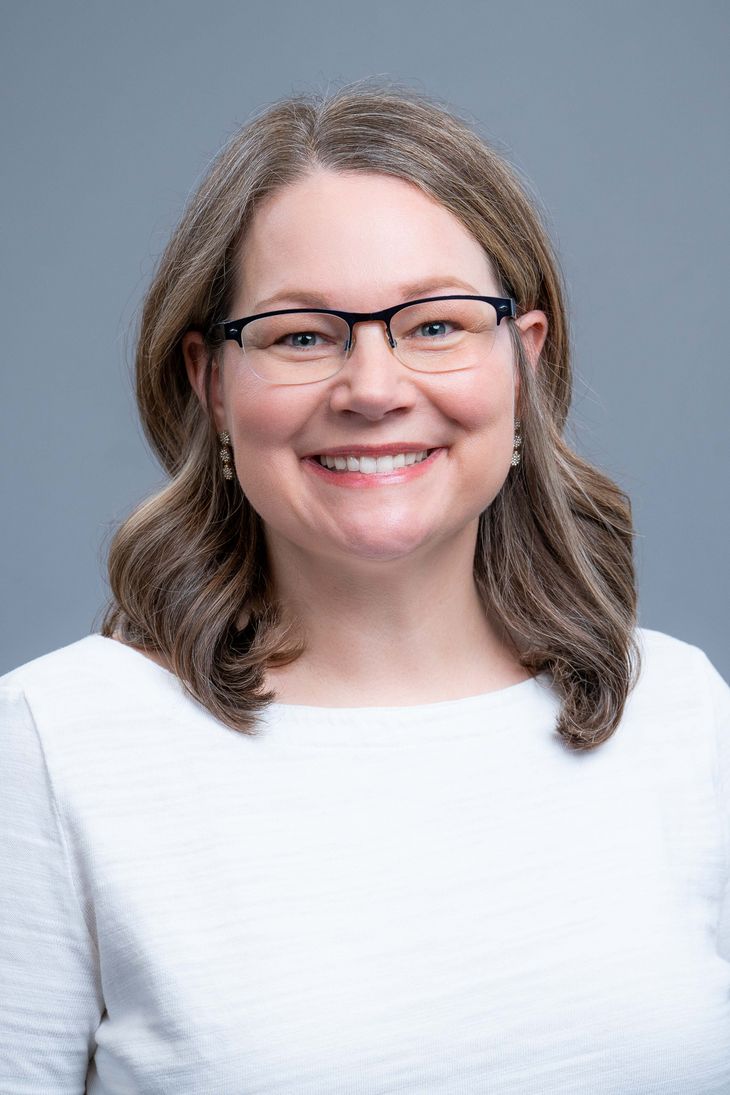
Message from the Director
The Ohio State University College of Nursing is home to outstanding scholars and researchers offering students the opportunity to work alongside faculty who are shaping the future of nursing science and healthcare. Our PhD students are carefully selected and mentored resulting in graduates whose scholarly work continues to contribute to the scientific basis for nursing practice and to the overall advancement of science.
To learn more about careers in nursing research, watch this panel discussion hosted by the NIH Office of Intramural Training & Education (OITE).
Research Areas of Interest
The focus of the PhD program at the College of Nursing is the examination of the broad determinants of health and disease in individuals, families and communities, with the intent to develop and test interventions to improve health. Consistent with the biopsychosocial focus of our discipline and growing national emphasis on interdisciplinary research and translational health science, special attention is given to the interactions among mind, body and environments through interdisciplinary research studies. Individual student research is closely tied to faculty research , which encompasses the life span, supports health promotion in a variety of health care and community settings, includes wellness care and complex and critical illness care, risk reduction, and symptom management. Faculty integrate biological, psychological, behavioral, and social measures to study the dynamic processes underlying these phenomena and test innovative approaches to improve health and healthcare outcomes.
Research Centers of Excellence
In line with our research areas of interest, the College of Nursing Supports three Research Centers of Excellence, designed to support faculty and students in their research:
Center for Research and Health Analytics
Center for healthy aging, self-management and complex care, the martha s. pitzer center for women, children and youth.

PhD Student and Faculty Research
Application deadlines.
Autumn 2025 Opens: Early August 2024 Deadline: December 1, 2024
Students interested in being considered for a Fellowship or other available funding opportunities should have their completed application submitted by October 1, 2024.
- Undergraduate
- Master's
- BSN to Doctor of Nursing Practice (DNP)
- Doctor of Nursing Education (DNE)
- Post-Master's Doctor of Nursing Practice (DNP)
- Student Funding
- Student and Faculty Research
- Information Sessions
- Certificates
- Office of Continuing Education
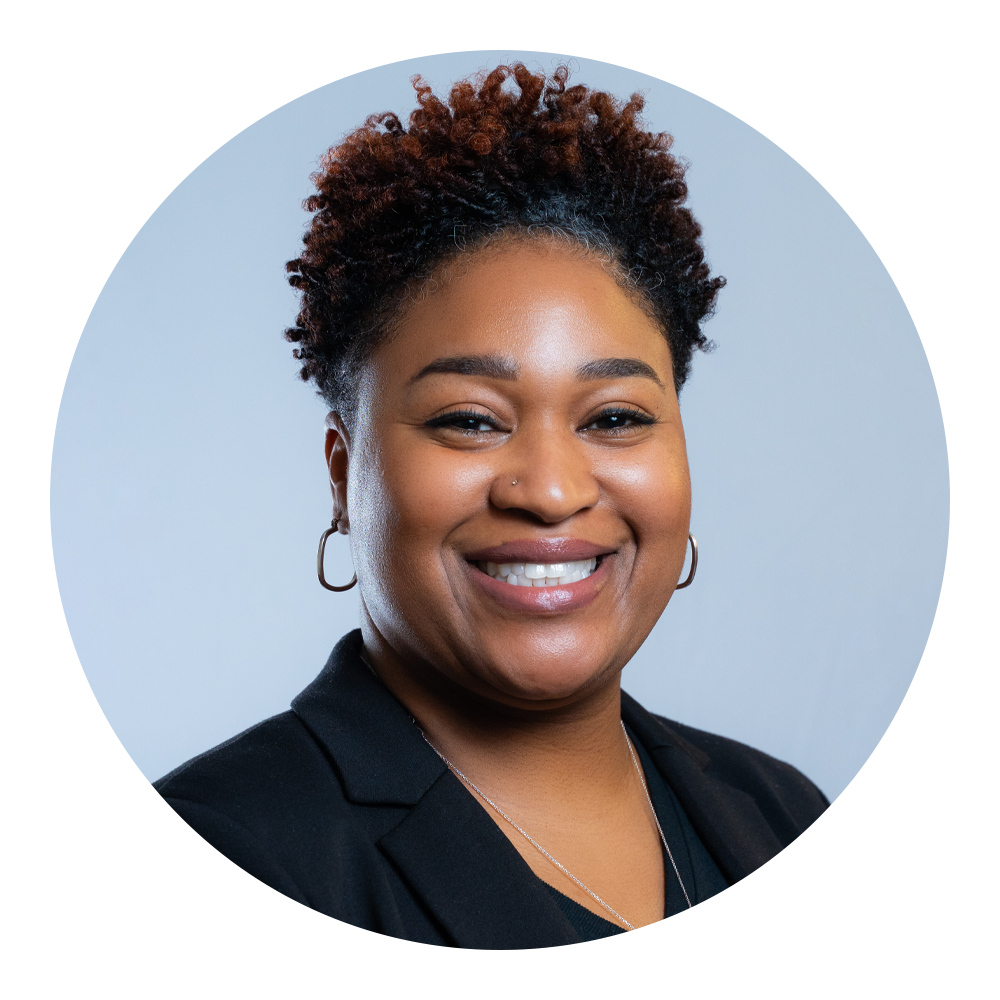
“The PhD program has completely changed the way I think about my role in healthcare. I am gaining the tools, skills, and resources needed to generate new knowledge to improve outcomes for underserved communities.”
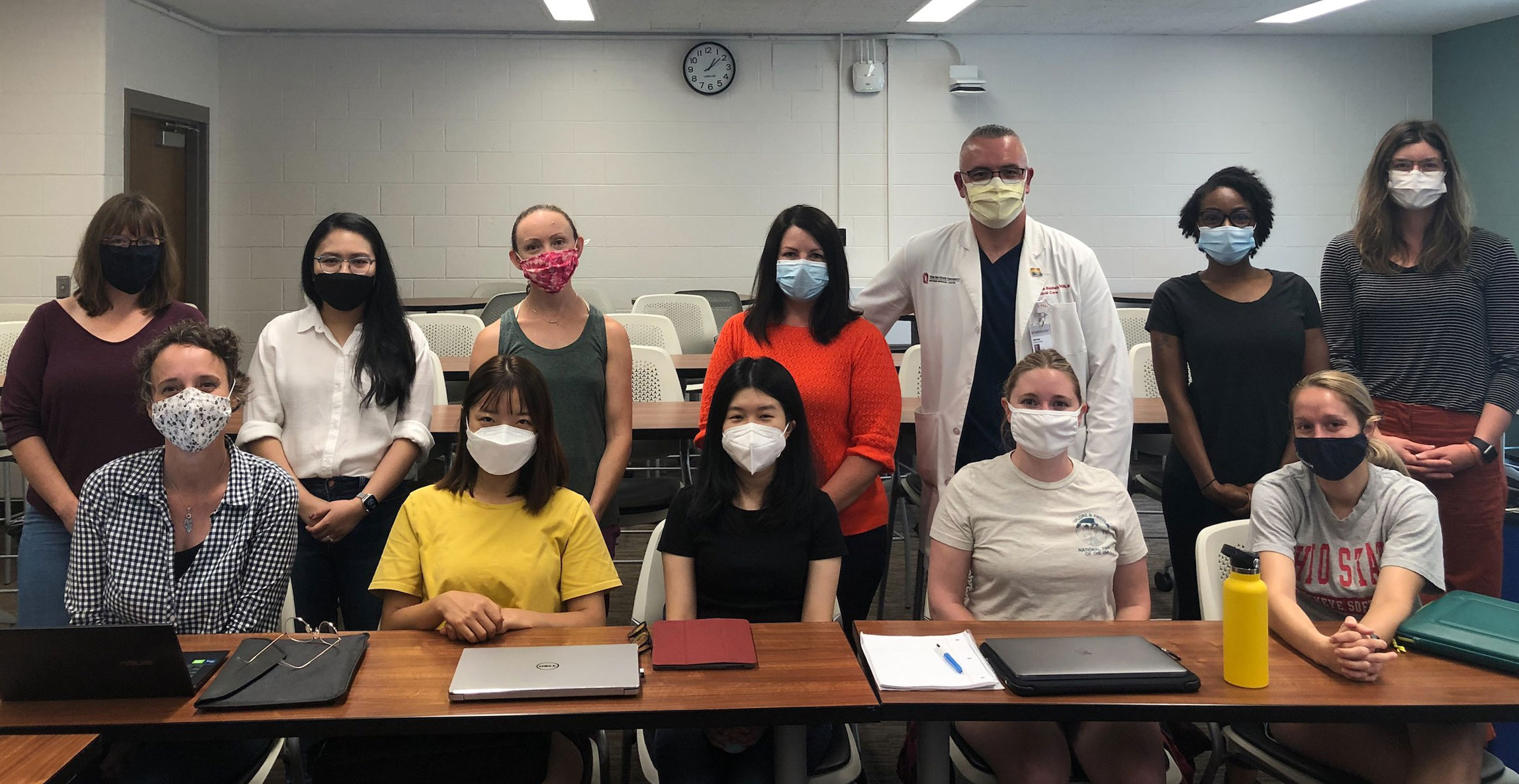
- Student Experience
- Research Expertise
- Master of Science in Nursing (MSN)
- Doctoral Programs
- Dual Degree Programs
- Post-Degree Certificates
- Post-Doctoral Fellowships
- Executive Education
- Prerequisites for Health Professions
- Master of Science in Nursing (MSN): Entry into Nursing Program
- MSN Healthcare Organizational Leadership
- MSN Healthcare Organizational Leadership/MBA Dual Degree
- Doctor of Nursing Practice (DNP) Advanced Practice
- Doctor of Nursing Practice (DNP) Executive Track
- Doctor of Philosophy in Nursing (PhD)
- DNP: Adult-Gerontological Acute Care Nurse Practitioner
- DNP: Adult-Gerontological Primary Care Nurse Practitioner
- DNP: Family Primary Care Nurse Practitioner
- DNP: Pediatric Primary Care Nurse Practitioner
- DNP: Pediatric Dual Primary/Acute Care Nurse Practitioner
- DNP: Psychiatric Mental Health Nurse Practitioner
- DNP: Nurse Anesthesia
- DNP Advanced Practice/PhD Dual Degree
- DNP Executive/MBA Dual Degree
- DNP Executive/MPH Dual Degree
- Doctor of Nursing Practice (DNP) to Doctor of Philosophy in Nursing (PhD)
- Post-Master’s Healthcare Organizational Leadership CERTIFICATE
- Post-Master’s Nursing Education CERTIFICATE
- Post-Master’s Pediatric Acute Care Nurse Practitioner CERTIFICATE
- Post-Master’s Psychiatric Mental Health Nurse Practitioner CERTIFICATE
- Post-Doctoral Opportunities
- How to Apply: Prerequisites for Health Professions
- Online Prerequisites for Health Professions FAQs
- Nutrition (NR.110.200)
- Human Growth and Development Through the Lifespan (NR.110.201)
- Biostatistics (NR.110.202)
- Microbiology with Lab (NR.110.203)
- Anatomy with Lab (NR.110.204)
- Physiology with Lab (NR.110.205)
- Chemistry with Lab (NR.110.206)
- Biochemistry with Lab (NR.110.207)
- Academic Advising
- Academic Calendar
- Academic Catalogue
- Academic Resources
- Course Schedules & Descriptions
- Student Academic/Administrative Forms
- Ask Admissions
- Engage with Us
- Financial Aid & Scholarships
- How to Apply
- Tuition & Fees
- International Students
- Contact Admissions
- Admissions Talks
- Online Chats
- On-Campus Events
- Off-Campus Events
- Virtual Information Sessions
- Recorded Events & Informational Videos
- Connecting with Us
- Apply for Financial Aid
- Student Loans
- Scholarships, Grants & loans
- Student Employment Opportunities
- Other Funding Sources
- Financial Aid Forms and Helpful Links
- Financial Services Frequently Asked Questions and Financial Aid Policies
- Student Enrollment & Account Management (SEAM)
- Clinical Placement Services
- Disability Services
- Fellowships, Honors Programs & Learning Opportunities
- Student Affairs
- The Learning Collaborative
- Faculty Directory
- Faculty Opportunities
- Endowed Chairs in Nursing and Bloomberg Distinguished Professors
- Faculty Handbook
- Areas of Expertise
- Nursing Office of Research Administration (NORA)
- Research Centers, Institute, and Specialty Interest Groups
- Research Opportunities
- Research Projects & Funding
- Acute & Chronic Care
- Community & Global Public Health
- Gender-Based Violence
- Infectious Diseases
- Mental Health & Behavioral Interventions
- Policy, Leadership & Administration
- Women, Children & Family Health
PhD in Nursing Funding Opportunities
Most full-time Johns Hopkins Nursing PhD students are 100% funded with a stipend for the first three years of study. Additional financial support is made available in following years. For full eligibility of scholarship opportunities, apply by December 1 .
Qualified students interested in the PhD program may be eligible to receive tuition and stipend support through the School of Nursing. The following types of funding are available:
- Interdisciplinary Training in Cardiovascular Health Research
- Graduate Partnership Program (GPP)
Graduate assistantships provide an opportunity for acquiring valuable research and/or teaching experience for qualifying students. Selection is competition-based with priorities given to those who have a good academic standing in the doctoral program. PhD students hired as graduate assistants receive a full-tuition waiver (base tuition payment for up to 6 credits for those in their 3rd year of doctoral study or after) and a stipend of $22,920 for the academic year 2015-2016. The full-tuition benefit is based on the number of hours worked at 20 hours per week . It is highly encouraged that the responsibilities of the graduate assistant position be consistent with the academic goals of the student.
- Full-time PhD students are expected to prepare and submit an application for external funding at the conclusion of the 1st academic year. Policies and guidelines
- Graduate assistantships are prepared to help ease financial strain which may be experienced by students during the application process and hence should not replace the effort to apply for external funding.
- Current students wishing to apply for a graduate assistant position can submit an application to the Doctoral Program Administrator, Kristen Hasch at [email protected] .
Award: $22,920 for 12 months, plus tuition Graduate assistantships are made possible by generous support from donors and SON general funds, including:
A. T. AND MARY BLADES FELLOWSHIP Established by A.T. Blades in loving memory of his wife Mary H. Blades who was a nurse.
CAYLOR FELLOWSHIP Established by Mrs. Caylor, a 1947 graduate of the School of Nursing, to support graduate students.
ELLEN LEVI ZAMOISKI DOCTORAL FELLOWSHIP Established in honor of Ellen Levi Zamoiski who was instrumental in forming the Consortium of Nursing Education, Inc. Zamoiski fellowships support future leaders of nursing.
SON FELLOWSHIP Given to current doctoral students with an excellent academic standing in the program and those who have excellent research and/or teaching skills.
TARGETED FELLOWSHIPS The following fellowships are part of the School’s strategic efforts to enhance the educational experience for all students.
PROFESSIONAL DEVELOPMENT AWARD Established by Johns Hopkins University School of Nursing Professor Maryann F. Fralic, DrPH, RN, FAAN to provide financial support for students in the PhD nursing program. The Professional Development Award is designed to support selected full-time doctoral students in honing their professional skills. These students will receive financial support to invest in themselves through professional development opportunities that best fit their needs and personal interests.
Award : $2,500
Additional Information for Professional Development Award
JOHNS HOPKINS HOSPITAL CLINICAL RESEARCH FELLOWSHIP The Johns Hopkins Hospital Fellowship in Clinical Research provides a qualifying PhD student with the opportunity for direct practice in a rich and diverse clinical practice environment.
Applicants for this Fellowship will be students who:
- Have a dissertation interest related to hospital-based practice or care problems
- Are interested in designing and submitting funding to Dorothy Evans Lyne or another funding source to study nurse-initiated protocols of care and impact on patients
- Are knowledgeable about evidence-based practice as the foundation for clinical research in a practice setting, and facile in research appraisal
- Have experience or an interest in measuring clinical outcomes and data management to interpret and make inferences about its meaning for improving practice or care
- Have the expertise to educate staff about research methods, analysis and interpretation, developing databases, data management, and data mining
Award : $22,032, plus tuition
JONAS SCHOLARS PROGRAM Established by The Jonas Foundation, funds are made available to students who are committed to teach future generations of nurses.
Award: $5,000 per year matched with $5,000 from the School for two years Learn more about the Jonas Scholars Program
As a research intensive university, Johns Hopkins is committed to having faculty and students engage in discovery of knowledge, inventing new technologies, and applying knowledge in the community and abroad. The School of Nursing offers a variety of post-doctoral opportunities to students eager to engage in this process. Opportunities include:
- Blaustein Fellowship in Psychiatric and Mental Health Nursing Research
- Fellowship in Aging
- Fellowship in Global Health and Gender-Based Violence
- Interdisciplinary Research Training on Violence in the Family
- Interdisciplinary Training Program in Biobehavioral Pain Research
JOHN A. HARTFORD FOUNDATION, “BUILDING ACADEMIC GERIATRIC NURSING CAPACITY” The American Academy of Nursing seeks applicants for its Building Academic Geriatric Nursing Capacity (BAGNC) Predoctoral Scholarship Program. This 2-year scholarship program supports full time doctoral education for nurses committed to careers in academic geriatric nursing. Through generous funding from The John A. Hartford Foundation , the BAGNC Program awards a total of $100,000 ($50,000 per annum) to each selected Predoctoral Scholar candidate. The Mayday Fund provides an additional $5,000 award to selected candidates whose research focuses on pain in older persons.
Award: $50,000/year for 2 years (additional $5,000 for research focusing on pain) Deadline : January
NURSE FACULTY LOAN PROGRAM Funding is used to provide loans to students enrolled in advanced education nursing programs that prepare graduates to serve as faculty in a school of nursing. Loans can be provided to students in the MSN, DNP and PhD programs who pursue the Nurse Educator certificate option. All Nurse Educator courses must be completed prior to the completion of the student’s degree program.
Apply to the Nurse Faculty Loan Program
ONCOLOGY NURSING SOCIETY The Oncology Nursing Society offers several one time, unrestricted awards. Additional small research grants that can be used for nursing research conduct (not stipends).
Award: $3,000-$5,000 doctoral scholarships; $10,000 small research grants (one-time awards) Deadline: February 1 for doctoral scholarships; November 1 for small research grants (letter of intent due October 1)
Apply for Oncology Nursing Society Awards
SIGMA THETA TAU INTERNATIONAL HONOR SOCIETY Sigma Theta Tau International (STTI) offers several small research grants which are open to doctoral students who are members. Grants are usually smaller and can be used to cover costs related to dissertation research. There are several different types with different focuses. Local STTI chapters often provide their own small research grants as well. The Johns Hopkins University School of Nursing is home to the STTI Nu Beta chapter .
Award: Approximately $5,000 small research grant awards Deadline: Varies depending on award (see website)
Apply for STTI awards
SOUTHERN NURSING RESEARCH SOCIETY The Southern Nursing Research Society (SNRS) offers two dissertation awards to support doctoral students in the Southern region (includes Maryland) enrolled in research-focused programs as they initiate a program of nursing research to advance nursing science and practice.
Award: Up to $3,000 one time dissertation award Deadlines: March and September (dates can vary)
Apply for Southern Nursing Research Society Award
STATE OF MARYLAND GRADUATE FACULTY SCHOLARSHIPS Funding for the Graduate Nursing Faculty Scholarship and Living Expenses Grant is provided by the Health Services Cost Review Commission (HSCRC) through the Nurse Support Program II (NSP II) to address the issues of recruiting and retaining nurses in Maryland hospitals.
Award: $13,000 per academic year ($6,500 per fall and spring semesters) up to $26,000 Deadline: August 1 for fall entry
Apply for State of Maryland Graduate Faculty Scholarships
TRISERVICE NURSING RESEARCH PROGRAM The Department of Defense provides research awards through the TriService Nursing Research Program to nurses in the armed services, including a predoctoral award. Active duty and Reserve students pursuing a master’s or doctoral degree in nursing are eligible. Dissertation topics must focus on one of the TriService priority areas:
- military deployment health
- generating and translating research into practice in a military context
- recruitment and retention of the military workforce
- developing and sustaining military nursing competencies
The topic of “military deployment health” is broad and includes the management of diseases such as asthma, diabetes, hypertension as well as issues in mental health. Award recipients must attend TriService Grant Camp for guidance on applying for and managing this award prior to being selected for the award.
Award: Up to $30,000 in direct costs Deadline: January 4
Apply for the TriService Nursing Research Program
We recognize that it can be financially burdensome to relocate to a new city to attend a PhD program. Students who are admitted to PhD programs at JHU can apply to receive a $1500 need-based grant to offset the costs of relocating to JHU.
These grants provide funding to a portion of incoming students who, without this money, may otherwise not be able to afford to relocate to JHU for their PhD program.
This is not a merit-based grant. Applications will be evaluated solely based on financial need.
AMERICAN ASSOCIATION OF UNIVERSITY WOMEN One of the world’s largest sources of funding exclusively for graduate women, the AAUW Educational Foundation supports aspiring scholars around the globe, teachers, and activists in local communities, women at critical stages of their careers, and those pursuing professions where women are underrepresented. Scholarships are not nursing-specific.
Award: $20,000 dissertation fellowships (final year of dissertation work); $30,000 post-doctoral research leave fellowships; $6,000 short-term research publication grants Deadline: Mid-November
Apply for the American Association of University Women’s award
FAHS-BECK FUND FOR RESEARCH AND EXPERIMENTATION Grants are to help support doctoral dissertation expense of students in the United States or Canada. Proposals must have clear relevance to major social problems affecting families or individuals, including education and literacy issues, or to interventions designed to assist individuals, couples, or families in their functioning and well-being.
Award : Up to $15,000 dissertation awards Deadline : May 1 and November 1
Apply for the Fahs-Beck Fund for Research and Experimentation
GRADUATE WOMEN IN SCIENCE Award: From $5,000 to $10,000 Deadline : January 15
Apply for Graduate Women in Science award
GUGGENHEIM FOUNDATION Ten or more fellowships are awarded to fund final-year dissertation projects in the natural and social sciences and the humanities that promise to increase understanding of the causes, manifestations, and control of violence, aggression, and dominance. Highest priority is given to research that can increase understanding and amelioration of these issues. Students become eligible at the writing stage of their dissertation.
Award: $15,000 one-time dissertation award Deadline: February 1
Apply for Guggenheim Foundation Fellowship
THE MELISSA INSTITUTE FOR VIOLENCE PREVENTION AND TREATMENT Established in the memory of Melissa Aptman, a Miami native who was murdered in May 1995, The Melissa Institute for Violence Prevention and Treatment is a non-profit educational, training and consultative organization that awards scholarships to graduate students from any discipline who address issues of violence prevention and/or treatment. The award must be used to support expenses that are directly related to the dissertation research. It may not be used for tuition, books, fees, personal travel, or personal expenses.
Award: $2,000 one-time award Deadline: April 1
“Johns Hopkins is strategically situated in the inner city of Baltimore. There are many disparities that minorities face within the community; I wanted to situate myself in a place where I could be most effective.” Morgan Dupree
Fully Funded PhD Programs in Nursing

Last updated May 14, 2022
As part of our series How to Fully Fund Your PhD , here is a list of universities that offer fully funded PhD programs in Nursing. A PhD in Nursing can lead to a variety of careers in academia, healthcare, and more.
“Full funding” is a financial aid package for full-time students that includes full tuition remission as well as an annual stipend or salary during the entire program, which is usually 3-6 years. Funding usually comes with the expectation that students will teach or complete research in their field of study. Not all universities fully fund their doctoral students, which is why researching the financial aid offerings of many different programs, including small and lesser-known schools both in the U.S. and abroad, is essential.
The ProFellow database for graduate and doctoral study also spotlights external funding opportunities for graduate school, including dissertation research, fieldwork, language study, and summer work experiences.
Would you like to receive the full list of more than 1000+ fully funded programs in 60 disciplines? Download the FREE Directory of Fully Funded Graduate Programs and Full Funding Awards !
Betty Irene Moore School of Nursing at UC Davis
(Sacramento, CA): Each student admitted to the doctoral degree program at the Betty Irene Moore School of Nursing receives generous financial support to cover in-state tuition, fees, and additional expenses. Students are also eligible to apply for additional funding through various external sources.
Boston College Connell School of Nursing
(Chestnut Hill, MA): We fully fund every full-time student’s tuition, fees, & insurance for three years. The Connell School and Boston College offer multiple opportunities to fund graduate education. CSON graduate students receive financial assistance through internal and external sources—including scholarships, fellowships, grants, teaching and research assistantships, and tuition remission.
Columbia University School of Nursing
(New York, NY): Columbia Nursing provides three years (eight semesters) of funding for tuition, related fees, health insurance, and a stipend for full-time Ph.D. students. The annual stipend amounts to $41,520.
Duke University School of Nursing
(Durham, NC): Ph.D. student tuition and 12-month stipends are fully funded for the first two years of the program. Tuition and 9-month stipends are fully funded in years 3-5 and students have the option to apply for competitive summer stipends in years 3-5. Additional financial support for health insurance and fees is available.
Emory University Nell Hodgson Woodruff School of Nursing
(Atlanta, GA): All full-time admitted students are granted a full tuition waiver and receive an annual stipend of $31,000 over 12 months in exchange for teaching and research services. These awards are renewed each year, contingent upon satisfactory academic performance, for a total of four years.
NYU Rory Meyers College of Nursing
(New York, NY): Our full-time PhD students are guaranteed three years of funding, consistent with our peer institutions. Students receive tuition and stipend support for a three-year period; however, the College encourages and offers resources for students to prepare proposals for predoctoral funding either through the National Institutes of Health or other organizations.
The Johns Hopkins University School Of Nursing
(Baltimore, Maryland): Most full-time Johns Hopkins Nursing PhD students are 100% funded with a stipend for the first three years of study. Additional financial support is made available in the following years.
The University of British Columbia
(Vancouver, BC, Canada): All full-time students who begin a UBC-Vancouver PhD program in September 2021 or later will be provided with a funding package of at least $22,000 for each of the first four years of their PhD. The funding package may consist of any combination of internal or external awards, teaching-related work, research assistantships, and graduate academic assistantships.
University of California Irvine Sue & Bill Gross School of Nursing
(Irvine, CA): Financial support is guaranteed for the first four years of the PhD program. Funding sources are available in the form of fellowships, teaching assistantships, research assistantships, campus scholarships, and grant awards. Students are especially encouraged to apply for grant funding in years four and five.
University of California San Francisco
(San Francisco, CA): In-state tuition/fees and a stipend are covered for our Ph.D. students for the first three years. For the fourth and fifth years, funding support is contingent on scholarship and grant funding availability.
University of Michigan School of Nursing
(Ann Arbor, MI): The UMSN is committed to assisting students with the financing of their nursing education and as such offers an attractive funding package (e.g., full tuition support, monthly stipend, and health insurance) that enables students to study full-time (available to students in the 3-year Accelerated or 4-year Traditional Programs) while providing the opportunity to gain valuable research experience learning from their faculty research mentor.
University of Pennsylvania School of Nursing
(Philadelphia, PA): Full-time doctoral students are funded for the first four years, which includes a living stipend and covers tuition, fees, and health insurance. Students may be funded internally or externally, depending on funding options available.
University of Rochester School of Nursing
(Rochester, NY): All full-time UR School of Nursing students are 100 percent funded with full tuition waivers and an additional cost-of-living stipend of $25,000 for the first four years of study. Additional financial support is facilitated in the following years through assistance with student applications for a wide range of funding for continued Ph.D. study and research.
University of Toronto, Lawrence S. Bloomberg Faculty of Nursing
(Toronto, Ontario): The base funding package normally consists of 3 elements: Tuition fee, Award, and Teaching Assistantship. Overall, the minimum value of the base funding package is $17,250 plus the tuition fee, or approximately $25,050.
University of Virginia School of Nursing
(Charlottesville, VA): All admitted students to the PhD program are eligible to be awarded four years of scholarship to cover tuition, insurance, and fees, in exchange for serving as a GTA for 10 hours per week.
Western University School of Graduate and Postdoctoral Studies
(Ontario, Canada): Western guarantees minimum annual funding for doctoral students, from all sources, of $13,000 plus tuition. In addition to the financial support available from federal and provincial sources and research grant support, Western offers a variety of internal awards.
Yale University School of Nursing
(New Haven, CT): All students are fully funded, including tuition, healthcare, and a monthly stipend for 4 years. Students are mentored to seek additional funding for their dissertation, including NIH (F31), Sigma Theta Tau, and American Nurses Foundation, among others.
Need some tips for the application process? See my article How To Get Into a Fully Funded PhD Program: Contacting Potential PhD Advisors .
Also, sign up to discover and bookmark more than 1800 professional and academic fellowships in the ProFellow database .
© Victoria Johnson 2020, all rights reserved.
Related Posts:
- Fully Funded Master's Programs in Nursing
- Fully Funded PhD Programs in Cinema and Media Studies
- Fully Funded Master's Programs in Chemistry
- Fully Funded PhD Programs in Health Informatics
- Fully Funded PhD Programs in Mathematics
Fully Funded PhD Programs , PhD in Nursing
Working in Diversity Recruitment and Educational Policy in New Orleans...
Hands-on experience in zero budget natural farming in india: the susta..., find and win paid, competitive fellowships.
Be alerted about new fellowship calls for applications, get insider application tips, and learn about fully funded PhD and graduate programs
Fellowship Resources
- Calls for Applications
- Upcoming Fellowship Deadlines
- Fellowships Database
- Interviews with Fellows
- International Fellows Network
- Graduate Funding Directory
Fellowship Tips
- What is a Fellowship?
- Fully Funded Course
- Graduate School Funding
- Fellowship Application Tips
- Fulbright Application Tips
- Fellowship Application Guide
- Our Mission, History & Values
- ProFellow Winner Testimonials
- Fully Funded Course Testimonials
- Fellowship Industry Report
- Advertise With Us
- Terms & Privacy
ProFellow is the go-to source for information on professional and academic fellowships, created by fellows for aspiring fellows.
©2011-2024 ProFellow, LLC. All rights reserved.
How to Get a DNP, DNS, or PhD in Nursing
In 2006, 108 schools offered doctoral degrees in nursing. In addition to a PhD, Doctor of Nursing Practice (DNP), and Doctor of Nursing Science (DNS) are doctoral degrees granted in nursing. The number of doctorate degrees offered in nursing has risen as nursing itself has become more complex.
A PhD in health with a specialization in Nursing may prove particularly valuable for nurses who want to obtain senior management positions. Although not required in all cases, senior management jobs are increasingly going to holders of advanced degrees in nursing.
The ability to teach nursing at the college level is another terrific opportunity associated with going beyond the Registered Nurse (RN) license to obtain a doctoral degree in nursing such as a DNS or DNP. Many qualified applicants for undergraduate nursing colleges are being turned away because of a shortage of qualified nursing faculty.
Overall prospects for job growth in the field of nursing are excellent. Nurses who have obtained PhD-caliber degrees in nursing may be uniquely positioned to serve the common good while doing quite well for themselves at the same time.
However, you must carefully research the different types of doctoral degree nursing programs available, as well as the individual schools that offer these programs. There are many choices to make before you actually choose a particular school.
How to Apply for a PhD Program in Nursing
The first thing to do is to take an overview of the types of doctorate degrees offered in nursing. There are quite a few, and detecting differences between them can be difficult, even for seasoned RNs who are familiar with the various acronyms involved.
If a particular doctorate degree in nursing strikes your fancy, search for campus degree programs by location to find a doctoral degree in nursing near you.
PhD in Nursing Education
A PhD in Nursing education is one option for nurses looking to share their knowledge with others by entering the teaching profession. A PhD in Nursing education may qualify you for a professorial position at an on-campus or online nursing degree program.
The PhD in Nursing education teaches you about how to teach nursing for a living. Because you must already possess a master’s degree in nursing or a related field before starting a PhD degree in nursing education, teaching techniques are emphasized.
Typical coursework for a PhD in Nursing education degree may include:
- Curriculum development
- Teaching strategies
- Nursing theory and history
By the time you graduate with a PhD degree in nursing, you should be prepared for the Certified Nurse Educator (CNE) exam. Colleges and universities use the CNE exam as a measuring stick of your readiness to teach nursing as a professional academic.
Online PhD Degree in Nursing Education
Obtaining an online PhD in Nursing education, as opposed to attending an on-campus program, is an interesting possibility not only from your perspective as a student, but also because you may want to teach online yourself someday.
In that sense, familiarity with online education could be viewed as a plus by some employers. Top online doctorate programs may even prefer to hire their own graduates.
PhD in Nursing
Pursuing a PhD degree in nursing may be a strong option if you are already an advanced practice nurse with an established area of specialization. The PhD in Nursing is traditionally a more science-intensive course of training, and may last up to five years.
An advanced practice nurse has a master’s degree and is known by area of specialization. The four areas of specialization for advanced nurses are:
1. Nurse Practitioner (NP)
A nurse practitioner has more authority and expertise than a regular registered nurse, as indicated by the legal ability to write prescriptions.
2. Certified Registered Nurse Anesthetist (CRNA)
A certified registered nurse anesthetist is licensed to administer anesthesia to patients.
3. Clinical Nurse Specialist (CNS)
A clinical nurse specialist specializes in a particular area of medicine such as cardiology, pediatrics, or mental health.
4. Certified Nurse Midwife (CNM)
The certified nurse midwife has expertise in birth and motherhood nursing topics.
If you have already gained distinction in one of the above areas of specialization, and want to pursue even greater knowledge in your current area of expertise, a PhD in Nursing may be a better choice for you than a PhD in Nursing Education.
Doctor of Nursing Practice (DNP)
The Doctor of Nursing Practice (DNP) degree is a relatively new doctoral degree program that is being adopted by an increasing number of educational institutions. Finding that elusive balance between science, ethics, and fiscal concerns has become extremely difficult in today’s health care system. DNP graduates are well-equipped to take on that challenge.
If you could picture yourself starting or running a stand-alone clinic or a division of a large hospital, think about pursing a DNP. The DNP can help students secure a comprehensive and well-grounded understanding of how quality medical care is best delivered and administered in the real world.
Doctor of Nursing Science (DNS)
Nurses deal with science every day, but nursing itself may also be considered a science. The Doctor of Nursing Science (DNS) degree addresses the latter half of this equation by teaching the “hard” side of nursing, the part that has to do with statistics and economics.
A nurse with a DNS degree can be expected to have thorough knowledge of:
- Health outcomes measurement
- Business processes
- Information technology
If you approach nursing as more science than art, and want to tackle the thorny problems of how to make health care delivery more efficient and accountable, pursuing a doctor of nursing science degree may be right for you.
PhD in Nursing Philosophy
Nurses who obtain a PhD in Nursing Philosophy are the scholars that help build up the body of knowledge medical professionals need in order to heal people every day, for example publishing in nursing journals or working at a public policy think tank.
Applying for a Doctorate Degree in Nursing
If just hearing about the variety of doctorate degrees in nursing offered and the challenges inherent in each degree seems daunting, rest assured that choosing which doctoral degree program to pursue may be the hardest part of the application process.
Once you’ve identified exactly which degree you want and why, you’re far advanced towards making a responsible choice.
Still, a bit more research is required to make the best choice of schools. As nursing schools of varying quality proliferate due to the huge demand for nursing education, proper research becomes ever more important. You want to choose a doctoral degree program that will be respected in the industry.
Should You Consider an Online Doctorate Degree in Nursing?
Many currently practicing nurses, cannot envision obtaining a PhD degree in nursing online. While such concerns are certainly valid, online doctorate degrees in nursing have strengths, too. The obvious and primary benefit to an online PhD degree in nursing as opposed to attending an on campus doctorate degree program is flexibility in terms of class schedule.
Online doctorate degrees in nursing, after all, are specifically designed with the working RN in mind, knowing that your job does not allow time for being stuck in traffic, visiting a professor in-person for office hours, or haggling about student parking passes. Besides the pleasant absence of those life logistics problems, an online PhD in Nursing may open your mind anew to the exciting possibilities of information technology, specifically with respect to the practice of nursing.
One has only to examine the health care reform packages being passed around the halls of Congress to see that mastery of information technology can help you become a better nurse. Electronic medical records are just one notable example of this trend.
Without discounting the value of on campus doctorate degrees at all, an online PhD program may increase your excitement about and understanding of the future of nursing.
Criteria for Choosing a Doctoral Degree in Nursing
Now it’s time to name the essential and optional criteria by which you can choose the best PhD, DNP, or DNS degree in nursing program for your purposes.
Accreditation
When choosing a PhD, DNP, or DNS degree in nursing, be extremely wary of any educational institution that is not accredited. Accreditation can affect your eligibility for financial aid–and even employment.
At the same time, it’s instructive to realize that the nursing shortage of the past years has caused some chaos in the industry, reducing the ability of nurses to participate in accreditation work. The National League for Nursing Accreditation, for instance, has only accredited one doctorate degree in nursing in the entire nation. The Commission on Collegiate Nursing Education has been more active overall, but also has a backlog of programs to review.
In light of this situation, prospective students for doctorate-level nursing programs must look to non-industry-specific accreditation organizations for guidance. To check the validity of an accrediting organization, view the list of approved approvers at the Council for Higher Education , the premier authority on accreditation.
Educational Requirements
Although there are a few doctorate degrees in nursing that allow you to get your master’s while you get your PhD, the vast majority of doctorate-level degree programs require a bachelor’s and a master’s degree before you can apply for a PhD, DNP, or DNS degree program. To check the educational requirements of particular programs, you can easily submit a query form to multiple schools through WorldWideLearn.com and receive multiple responses.
As a starting point, though, assume that you’ll need a bachelor’s and a master’s degree in nursing. If you don’t yet have those degrees, search for nursing degrees by level to discover the right online nursing program for your stage in life.
Experience Requirements
Nursing is a profession that quickly weeds out the ivory tower theorists and utopian dreamers. The whole culture of nursing is geared to learning by experience. Many doctorate degree programs in nursing respect this tradition by requiring at least two years of nursing work experience as a condition of admission. Contact schools directly to learn more about experience requirements.
Financial Aid
Pursuing a doctorate-level degree in nursing can be costly, both in terms of dollars spent and paying work crowded out by the need to study. Because nurses, especially highly educated nurses, are in such demand, a large number of grant and scholarship programs are available to nurses seeking education.
The American Association of Colleges and Nursing maintains an excellent list of financial aid options available to nurses interested in pursuing doctorate degrees in nursing. WorldWideLearn.com also offers information on obtaining financial aid.
If you’re leaning towards an on-campus doctorate degree in nursing, search for schools by location. Maybe that PhD degree in nursing is within driving distance or maybe it’s time to move to a new place for a new adventure.
Do Your Homework: Research Doctorate Degrees in Nursing
The complexity of choosing a suitable online or on-campus PhD, DNP, or DNS degree in nursing is mitigated by the panoply of resources available to you as you do your research.
Pursuing a doctoral degree in nursing is a big decision and must be treated as such. Keep researching on-campus and online doctoral degree options until something not only feels right, but makes perfect sense from a logic and career perspective.
- American Association of Colleges of Nursing
- American College of Nurse Midwives
- American Nurses Association
- American Society of Registered Nurses
- Bureau of Labor Statistics, Nurses
- National Council of State Boards of Nursing
- National League for Nursing
- National League for Nursing Accreditation
- Privacy Policy
- Terms of Use
- Disclosure: “What Determines Top/Best?”
- Do Not Sell My Personal Information (CA and NV)
Copyright © 2024 Worldwidelearn.com. All Rights Reserved.
The sources for school statistics and data is the U.S. Department of Education's National Center for Education Statistics and the Integrated Postsecondary Education Data System unless otherwise noted.
Disclosure: EducationDynamics receives compensation for many of the featured schools on our websites (see “Sponsored School(s)” or “Sponsored Listings” or “Sponsored Results” or “Featured Graduate School(s)”. So what does this mean for you? Compensation may impact where the Sponsored Schools appear on our websites, including whether they appear as a match through our education matching services tool, the order in which they appear in a listing, and/or their ranking. Our websites do not provide, nor are they intended to provide, a comprehensive list of all schools (a) in the United States (b) located in a specific geographic area or (c) that offer a particular program of study. By providing information or agreeing to be contacted by a Sponsored School, you are in no way obligated to apply to or enroll with the school.
This site does not provide a comprehensive list of all schools that offer a particular program of study.
This is an offer for educational opportunities that may lead to employment and not an offer for nor a guarantee of employment. Students should consult with a representative from the school they select to learn more about career opportunities in that field. Program outcomes vary according to each institution’s specific program curriculum. Financial aid may be available to those who qualify. The information on this page is for informational and research purposes only and is not an assurance of financial aid.
Doctoral Degrees
Know How to Go from an MSN to a PhD
Home » PhD and DNP Degrees » Know How to Go from an MSN to a PhD
With many nursing schools nationwide facing a faculty shortage, the demand for qualified nursing educators continues to grow.
In addition to the personal satisfaction of educating a new generation of nurses, nursing educators and scholars play a vital role in groundbreaking scientific research to fight disease and improve patient outcomes.
While the master’s degree in nursing is typically the minimum education required for a nursing educator, the PhD in nursing is gaining momentum as the preferred standard for nurses looking to advance their career in higher education and research. Moving from an MSN to PhD in nursing can have several benefits for nurses who want to make the transition from the bedside to the classroom.
Why get a PhD in Nursing?
If you already have a master’s degree in nursing, you may wonder, “Why do I need a PhD?” The answer is: If you’re looking to become a nurse educator or researcher, your chances of landing one of those coveted roles greatly improves with a doctorate in nursing education.
One reason to choose the MSN to PhD path is that most nursing schools are looking for PhD-trained nurses when hiring faculty.
A survey conducted by the American Association of Colleges of Nursing found a nursing faculty vacancy rate of almost 8% at nursing schools nationwide. But even with the current faculty shortage, the AACN survey found 56% of the vacancies were for faculty positions requiring a doctoral degree, and another 34% were for positions that preferred PhD candidates. A PhD in nursing certainly gives faculty candidates a leg up over the competition when applying for nursing faculty positions.
Transitioning from an MSN to PhD in nursing also can bolster one’s research credentials. Nursing graduates with a PhD in nursing are better prepared to conduct important nursing and other healthcare research related to disease prevention and treatment and methods for improving patient care.
“When nurses do research on their doctorate, many people tend to think that it primarily focuses on nurses and nursing care,” according to the AACN . “In reality, nurses carry out clinical research in a variety of areas, such as diabetes care, cancer care and eating disorders.”
Nursing educators with doctoral degrees have opportunities to publish the findings of their research in scholarly journals, write grant proposals and might be asked to speak as experts at healthcare meetings or conferences.
And while a career in higher education might be the most common career path for those with a PhD in nursing, it’s not the only option. A research-focused doctoral degree in nursing can pave the way for nurses to conduct clinical research in hospitals, research laboratories or in public health and public policy, as well as to move up into executive and leadership positions in hospitals and healthcare facilities.
Other benefits of a PhD in Nursing
Getting a doctorate in nursing education can have other less tangible but equally important benefits for those looking to pursue careers as nurse educators. The National League for Nursing listed some of the top reasons to consider a career as a nurse educator, including:
- Working in an intellectually stimulating environment.
- Having greater autonomy and flexibility.
- Being able to teach from virtually anywhere, using technology.
- Conducting important research that advances the field.
- Shaping the future of healthcare.
- Educating and mentoring a new generation of nursing professionals.
- Teaching a love of nursing to others.
And while a career in academia can be challenging, the working conditions may be appealing for nurses who are looking for a change of pace from their roles in direct patient care settings. Many nursing faculty work nine months a year with summers off, and nurse educators typically do not have to work long 12-hour shifts or overnight hours like clinical nurses often do.
Finding the right PhD program
Many MSN to PhD programs are available for master’s educated nurses, and there are several factors to consider in choosing the right program.
Selecting a doctoral program comes down to personal choice, but important things to consider include the quality and accessibility of faculty and the program’s commitment to research.
In choosing a PhD program, students can consider several questions that could tip the balance toward the perfect program. For instance, students may want to consider whether they have opportunities to work one-on-one with a faculty member on an independent study or individually designed project and whether they can publish alongside faculty. Also, can students participate in research projects or other professional initiatives.
Students also need to decide whether they want to pursue their degree in a traditional on-campus environment or online.
Online MSN to PhD programs can be an attractive option for master’s trained nurses who want to continue working while pursuing their doctoral studies. Many MSN to PhD programs can be completed in as little as two to three years of coursework, but a dissertation or research project also is required, which usually takes at least another year. Students should carefully review the requirements of the programs they’re considering — including number of required credit hours and cost — when making a decision about a doctoral program.
Nursing Education
Search Programs
Search hundreds of nursing programs in just a few steps.
Related Articles

- News & Events
- Faculty & Staff

A world-class city filled with art and culture and an incredible campus that offers cutting edge resources–that’s what students receive at Penn Nursing. And that’s just the start. Penn Nursing and the wider university offer something for everyone, as well as a lifelong community.

Penn Nursing is globally known for educating dynamic nurses—because our School values evidence-based science and health equity. That’s where our expertise lies, whether in research, practice, community health, or beyond. Everything we do upholds a through-line of innovation, encouraging our exceptional students, alumni, and faculty share their knowledge and skills to reshape health care.

Penn Nursing students are bold and unafraid, ready to embrace any challenge that comes their way. Whether you are exploring a career in nursing or interested in advancing your nursing career, a Penn Nursing education will help you meet your goals and become an innovative leader, prepared to change the face of health and wellness.

Penn Nursing is the #1-ranked nursing school in the world. Its highly-ranked programs help develop highly-skilled leaders in health care who are prepared to work alongside communities to tackle issues of health equity and social justice to improve health and wellness for everyone.

Penn Nursing’s rigorous academic curricula are taught by world renowned experts, ensuring that students at every level receive an exceptional Ivy League education . From augmented reality classrooms and clinical simulations to coursework that includes experiential global travel to clinical placements in top notch facilities, a Penn Nursing education prepares our graduates to lead.

Designed for highly motivated nursing students who possess a Bachelor’s of Science in Nursing and who want to pursue an advanced practice MSN degree in conjunction with our PhD program .

About the Program
The penn advantage.
Home to some of the most forward-thinking scholars and researchers in the world, Penn offers the opportunity to work alongside faculty who are actively shaping the future of nursing science and healthcare. Our networks and longstanding clinical and community partnerships throughout greater Philadelphia and beyond provide uncommon access to research and practice resources.
Program Information
Program Length
Financial aid available?
Start Semester
Learning Format
In-person *
Program details.
Each curriculum varies based upon your chosen MSN specialty program . Upon admission, you’ll be paired with two standing faculty members for mentorship and guidance. All standing faculty members have appointments in at least one of Penn Nursing’s four research centers which can also provide support services to you in your work.
Requirements
Minimum qualifications for the program.
BSN degree with a GPA of 3.0 or higher
Prerequisites
College level statistics course
See individual MSN concentrations for required program-specific RN experience
Application Deadlines
You will apply to both our MSN and PhD programs at the same time, and if accepted into both, have a place held for you in the PhD program while you complete the MSN program.
Full-time Enrollment Deadline: November 4, 2024
Decision Notification: late-February
Part-time Enrollment
Spring 2025 start deadline: october 15, 2024.
Decision Notification: late-December
Summer 2025 Start Deadline: March 15, 2025
Decision Notification: late-April
Fall 2025 Start Deadline: April 1, 2025
Decision Notification: mid-May
*Dates subject to change without notice.
Costs & Tuition
Your program costs will depend on how many course units (CU) you take per semester.
Applicants to this program may be eligible for the Leonard A. Lauder Community Care Nurse Practitioner Program Fellowship , which offers a free Penn education to budding NPs who are committed to working in underserved communities after graduation.
Discount available for employees of our Academic Practice Partners. Click here to learn more.
To be considered a full-time student you must have a course load of 3 CUs or more per semester, including summer terms; anything less, in any semester, is considered part-time. If you apply as a full-time student, but switch to part-time, lowering the number of CUs you take per semester will decrease the cost of your tuition and fees, which will in turn lower your student budget and reduce your financial aid eligibility. You will no longer be eligible for nursing grant or endowed scholarship funds.
The charts below outline costs based on the school year/summer sessions as well as include estimated other expenses like housing.
Tuition & Fee Rates and Living Expense Budgets (Fall 2023 & Spring 2024)
| Tuition and Fees | $56,262 |
| Housing | $17,388 |
| Meals | $5,796 |
| Books* | $1,358 |
| Other Personal Expenses* | $7,276 |
*Category for Other Personal Expenses includes a budget for the cost of Student Health Insurance. Please keep in mind that the school does not bill the student for books and personal expenses. We do, however, build these figures into the Student Budget to better help students and their families plan for all costs associated with a Penn Nursing education. Likewise, loan eligibility and financial aid is based on the total student budget per term, not just on the cost of tuition and fees.
Every student’s living situation and personal expenses are different, but below are the projected academic year Summer and Fall/Spring costs per CU. These can be multiplied by the total number of CUs in your part-time plan of study to estimate the total cost of an MSN program.
Summer 2023 - per course unit (CU):
| Tuition | $6,392 |
| General Fees | $474 |
Summer 2023 - living expenses:
| (both sessions) |
Fall 2023 or Spring 2024 - per course unit (CU)
| Tuition | $6,392 |
| General Fee | $474 |
| Technology Fee | $116 |
We are committed to assisting all full-time PhD students for four years of tuition, fees, living stipend, and health insurance. You may be funded internally or externally, depending on the options available. The doctoral program leadership will determine which funding is most appropriate for all incoming students. Students who choose part-time enrollment are responsible for paying for their own tuition, fees, and health insurance. Learn more about financial aid for PhD students .
The charts below outline costs based on the school year. For full-time doctoral students, after the first five years the reduced rate is charged until the Doctorate degree is awarded, or for a maximum of five additional years.
Full-Time: Fall 2023 & Spring 2024
| Tuition | $41,544 |
| General Fees | $3,802 |
| Technology Fee | $900 |
| Clinical Fee | $688 |
Part-Time Per CU: Fall 2023 & Spring 2024
| Tuition and Fees | $7,706 |
| General Fee | $472 |
| Technology Fee | $114 |
Doctoral Reduced Rate: Fall 2023 & Spring 2024
| Tuition | $5,192 |
| General Fee | $954 |
| Technology Fee | $900 |
| Clinical Fee | $954 |
Program Outcomes
At the completion of this advanced level of nursing education, Penn Nursing MSN graduates will:
- Use scientific inquiry to translate evidence into practice and promote clinical scholarship
- Perform advanced nursing skills for specialty and subspecialty nursing practice
- Lead quality improvement and manage care delivery models across settings
- Leverage strong networks to advance in professional role
Our doctoral graduates go on to take coveted leadership roles in academia, healthcare, government, and related fields, and are integral to the growth of our profession.
Related Links

Ready to take the next step?
See yourself here.

- Andy & Barbara Gessner College of Nursing
- How to Apply
- Doctor of Nursing Practice (DNP)
How to Apply to the Doctor of Nursing Practice (DNP)
If an individual meets the Admission Requirements , they can apply to the Doctor of Nursing Practice (DNP) . Individuals interested in pursuing the Second Degree BSN at UH will need to complete an online application through NursingCAS.
Applicants will need to submit the following to NursingCAS:
- Official transcript(s) from EACH college or university attended, sent directly from each institution to NursingCAS before the deadline. (For timely and accurate processing, students should ensure that all official documents have been submitted to NursingCAS at least 6 weeks prior to the deadline date.) Mailing address is:
- Applicants with International transcripts need to follow additional procedures.
- Evidence of an unencumbered, current Texas Registered Nurse license.
See Application Deadline page for deadline information
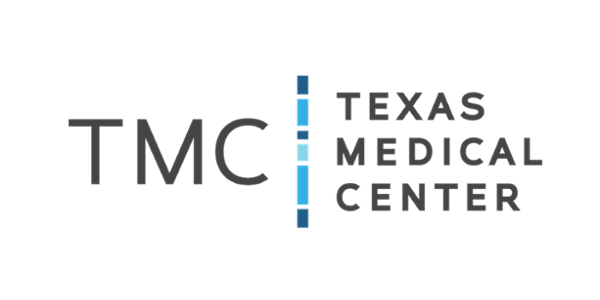
- Account Settings
FEATURED INSIGHTS
- Provider operations
- Site-of-care shifts
- Specialty care
- State of the healthcare industry
- Value-based care
- View all featured insights
RESOURCES BY SECTOR
- Digital health
- Health plans
- Hospitals and health systems
- Medical device
- Physicians and medical groups
- Professional services
- View all sectors
NEWS & INSIGHTS
- Daily Briefing
- Radio Advisory
- Advisory Board tools
PRODUCTS & SERVICES
- Research Membership
- Custom Research
- Expert Support
- Advisory Board Fellowship
- On-Demand Courses
- Sponsorship
FEATURED CONTENT
Truly personalized care is possible. here's how to make it a reality..
Learn to navigate 4 key obstacles to improve patient access to innovative care.

- AskAdvisory
Our direct-to-expert service is here to help you navigate your membership, our research, and your most pressing challenges in healthcare. No question is too big or too small.
How to evaluate the readiness of new graduate RNs

Our new graduate nurse performance survey is designed to capture all nurses’ perceptions of new graduate nurse performance across 36 key competencies.
By assessing performance on both clinical and non-clinical skills, this assessment tool empowers nurse educators and leaders to identify opportunities for enhancing new graduate nurse proficiency.
This toolkit serves as a step-by-step implementation guide for deploying the survey.
Is this content helpful?
- You'll learn how to evaluate new grad RNs with a 36-competency survey.
- You'll be able to pinpoint development areas for tailored support.

Allyson Paiewonsky, MPH
Posted on June 27, 2024
Updated on July 02, 2024
We help leaders and future leaders in the healthcare industry work smarter and faster by providing provocative insights, actionable strategies, and practical tools to support execution.
- All Resources
- Our History
- Legal Disclaimer
- Privacy Policy
- Terms of Use
Don't miss out on the latest Advisory Board insights
Create your free account to access 1 resource, including the latest research and webinars.
Want access without creating an account?
You have 1 free members-only resource remaining this month.
1 free members-only resources remaining
You've reached your limit of free insights
Become a member to access all of Advisory Board's resources, events, and experts
Never miss out on the latest innovative health care content tailored to you.
Benefits include:


First cohort in graduate nursing program at CSB get degrees
Academics Campus & Community Student Features
July 1, 2024
By Frank Rajkowski
The phrase still sounds a bit funny when Molly Sexe hears it out loud.
But the fact remains that she and the 11 other members of the initial Doctor of Nursing Practice (DNP) cohort at the College of Saint Benedict are pioneers.
When they began their studies in September of 2021 , they became the first students enrolled in the first doctoral program to be offered at the school.
And, this past May, they became its first full graduating class.
“It does seem weird to say because I’ve never thought of myself in that way,” Sexe said. “But it is very unique to be in this position as part of the first class to go through this program. It’s a cool feeling to be part of something like that.”
CSB’s nursing program has been around since 1973, and has long had a reputation for turning out high-quality graduates. But it wasn’t until three years ago that a graduate program was ready to be added.
It produced its initial graduate last August. But this spring marked the first graduating class. That group is made up of 10 students on the Doctor of Nursing Practice family nurse practitioner track, one on the Doctor of Nursing Practice leadership track and three earning Master of Science in Nursing-Education and Leadership degrees.
Eleven of the students completed their undergraduate degrees at CSB and elected to continue to the graduate program. Three enrolled after completing their undergraduate degrees somewhere else.
“The members of this first group truly are pioneers,” program director Dr. Jennifer Peterson said. “It’s so exciting for us as faculty because we’ve had the opportunity to grow with them. We all learned together these past three years. They learned from us and we learned from them.
“I’m extremely proud of everything this group has been able to accomplish.”
Samantha Hamm, who was on the family nurse practitioner track, earned her bachelor’s degree from Minnesota State-Mankato. But her husband was a Johnnie, so she’d spent time at CSB and SJU and knew the reputation of the nursing program here.
“I wanted to find a program that fit with the needs of myself and my family and I found that here,” she said. “I was pregnant when I first started the program, and I didn’t know if I’d be able to balance this with an infant/toddler. But this program is so family-orientated. Everyone goes out of their way to figure out ways to make it work for you.”
Hamm is now hoping to pursue a career in family practice, pediatrics or OBGYN after welcoming her second child in October.
“I’ve gotten the chance to put in a lot of hours in pediatrics, OBGYN and family practice and that’s been the biggest benefit for me,” she said. “Because I’ve worked in more of a rural setting, I’ve been able to see and do way more than I would have been able to in the Twin Cities.
“It’s given me so much valuable experience.”
Sexe ’18, who completed her undergraduate work at CSB, said her knowledge of how the nursing department worked made it an easy decision to stick around.
“I had an amazing experience here as an undergrad,” she said. “I had great clinical experiences and I knew how wonderful the professors were. The structure that’s in place is so solid, and I knew having that foundation would increase my confidence that this was something I could do.”
Both Hamm and Sexe said their experiences in the program these past three years have been overwhelmingly positive.
“It’s definitely been a whirlwind,” Sexe said. “When we started in 2021, there was the pandemic. It feels like a long time ago, but it’s been such a wonderful experience that it also could have been last week. As a cohort, I think we’ve all grown so close. Being part of this first class is a bond that will bring us together the rest of our lives.”
“There have been some growing pains, as you’d expect with any new program, but I love the faculty here so much,” Hamm added. “I’ve learned so much from them. I couldn’t have asked for a better experience.”

- Skip to main menu
- Skip to user menu
Nursing Program Director

Job Details
Position Overview: William Woods University is seeking a dynamic and experienced Nursing Program Director to launch, lead, and manage the undergraduate and graduate nursing programs, with a specific emphasis on relaunching the BSN Degree Completion program, launching a new registered nurse initial licensure program, and any other future nursing programs. The ideal candidate will possess a master’s degree in nursing (doctorate degree preferred), hold a current unencumbered nursing license in the state of Missouri, and preferably be a licensed Nurse Practitioner. Experience with CCNE programmatic accreditation and state of Missouri licensing standards are required.
Key Responsibilities:
Program Management: Lead the development and implementation of new campus-based RN Licensure, Online BSN Completion, and other nursing programs, ensuring alignment with CCNE programmatic accreditation standards and state of Missouri licensing requirements. Oversee the curriculum design, course development, and program structure for the new nursing programs, ensuring compliance with accreditation and licensing standards. Collaborate with stakeholders to establish program goals, objectives, and student learning outcomes that meet accreditation criteria. Establish and maintain the operating plan and financial budget for nursing.
Faculty and Staff Management: Recruit, onboard, and supervise faculty and staff members for the new nursing programs, providing guidance on CCNE accreditation standards and state licensing requirements. Support faculty in curriculum delivery, assessment, and adherence to accreditation criteria. Cultivate a culture of excellence, professionalism, and compliance within the program team.
Student Support and Engagement: Develop student support services and resources tailored to CCNE accreditation standards and state licensing regulations for nursing programs. Implement strategies to enhance student engagement, retention, and success while ensuring adherence to accreditation and licensing requirements. Address student feedback, concerns, and challenges in a manner consistent with programmatic accreditation and state standards.
Accreditation and Compliance: Lead the accreditation process for new nursing programs, ensuring compliance with CCNE accreditation standards and state of Missouri licensing regulations. Coordinate program reviews, self-assessments, and continuous improvement initiatives to maintain accreditation and licensing compliance. Stay abreast of changes in accreditation requirements and state standards to ensure program alignment. Ensure compliant NCLEX pass rates and future programmatic accreditation.
Community Engagement: Establish partnerships with healthcare organizations, clinical sites, and community stakeholders that support CCNE accreditation and state licensing standards for nursing programs. Promote the new programs through activities that highlight compliance with accreditation and licensing regulations. Engage with alumni, donors, and industry professionals to build support for the new nursing programs while emphasizing adherence to accreditation and state standards.
Qualifications:
Master’s degree in nursing is required, Doctorate degree in nursing or related field from an accredited institution preferred. Current, unencumbered nursing license in the state of Missouri. Nurse Practitioner certification preferred. Minimum of 5 years of experience in nursing education, program management, or leadership role. Strong knowledge of CCNE accreditation criteria and state of Missouri licensing regulations for nursing programs. Experience in successfully launching new nursing programs preferred. Exceptional leadership, communication, and project management skills with the ability to ensure program compliance and quality. If you meet the qualifications and have a strong background in navigating CCNE accreditation processes and state licensing standards for nursing programs, we invite you to apply for the position of Director of Nursing Program at William Woods University. Join us in shaping the future of nursing education and maintaining high standards of excellence in program quality and compliance.
Share this job
Get job alerts
Create a job alert and receive personalized job recommendations straight to your inbox.

IMAGES
VIDEO
COMMENTS
This program will provide you with the knowledge and skills in theoretical, methodological, and analytical approaches that will enable you to conduct research to discover and apply knowledge in nursing science and health care. Most full-time Johns Hopkins Nursing PhD students are 100% funded with a stipend for the first three years of study.
Ph.D. in Nursing Salary. Healthcare workers who hold a Ph.D. in nursing earn an average annual salary of $100,00 or $60.45 per hour, according to Payscale. However, your nursing salary will vary depending on your career, employer, location, experience, and other relevant factors.
DNP and Ph.D. in Nursing Key Similarities and Differences. A DNP and Ph.D. are both terminal degrees, meaning they are the highest degree a nurse can earn. Regardless of their choice of program, interested nurses need a bachelor of science (BSN) degree in nursing, an active and unencumbered registered nurse (RN) license, and clinical experience ...
Costs & Tuition. We are committed to assisting all full-time PhD students for four years of tuition, fees, living stipend, and health insurance. You may be funded internally or externally, depending on the options available. The doctoral program leadership will determine which funding is most appropriate for all incoming students.
Application Deadline: November 15, 2023. Decisions Posted: Early 2024. Program Start Date: September 2024. The Columbia University School of Nursing PhD program is a full-time, research-intensive curriculum that prepares nurses for careers as nurse scientists who will conduct research across a broad range of populations and health conditions.
PHD. Advance the theoretical foundation of nursing practice and healthcare delivery with a Johns Hopkins PhD in nursing. With access to world-renowned faculty, cutting-edge facilities, and opportunities for interdisciplinary collaboration with noted researchers throughout Johns Hopkins, you'll build the skills to develop and implement a scientific research program.
PhD Program in Nursing. Mentoring nurse scientists of the future is our priority. PhD Program. Financial Support. Full-time interdisciplinary educational experience that is 100% funded for four years. Meet the Students. Our students bring diversity in personal, educational, and clinical experience.
The PhD in nursing program prepares students for careers as scholars, nurse scientists., and academics ready to contribute to nursing science, knowledge, theory, and practice through systematic inquiry. By graduation, PhD in nursing students will: demonstrate advanced knowledge of nursing, related sciences and humanities, and methods of inquiry.
Georgetown's PhD in Nursing Program is designed to be a full-time, campus-based, premier doctoral program for individuals who want to be leaders for change by seeking to advance the discipline and those they serve in academic, community health, health care, policy, global, and research settings. Georgetown's PhD program will lead in ...
Earn a GW Nursing Doctor of Philosophy in Nursing to advance the theoretical foundation of healthcare delivery and nursing practice. Our PhD program is designed to equip graduates with the knowledge and skills in theoretical, methodological, and analytical approaches needed to conduct research and apply knowledge in the fields of nursing science and healthcare.
Ph.D. Nurse Salary & Employment. Salaries for Ph.D. nurses vary based on the type of employment a nurse seeks after graduation. Nurse researchers, a primary career path for Ph.D. nurses, can expect a median salary of $90,000 according to Payscale.com. For Ph.D. nurses who pursue a teaching position, the median annual wage for post-secondary ...
PhD Education. Find Programs. There is no doubt that education is the path for a nurse to achieve greater clinical expertise. At the same time, however, the nursing profession needs more nurses educated at the doctoral level to replenish the supply of faculty and researchers. The national shortage of faculty will soon reach critical proportions ...
Quickview. Degree: Nursing PhD Application deadline: June 1 GRE: Required Study options: Full-time/part-time Please Note: PhD students in the Bouvé College of Health Sciences may not request enrollment deferrals. If you are admitted for a given term but wish to be considered for a future term instead, you must re-apply to the program in order to be considered for admission and funding.
LEARN FROM A LEADER. Prepare with confidence when you earn your online PhD in Nursing from Walden, the leader in research doctoral nursing education. 1. BEGIN WITH A BSN. We offer two pathways to a PhD in Nursing. Whether you hold a BSN or an MSN, you can start your journey toward your doctorate. FOLLOW YOUR PASSION.
To achieve the prerequisites and earn a Ph.D. in nursing, you can follow these steps: 1. Complete a Bachelor of Science in nursing degree. Earn a bachelor's degree in nursing or a related field if you're interested in pursuing this career. During your education, you may take courses in nursing research, health care law and ethics, chemistry ...
The PhD program at the College of Nursing is a campus-based program. A full-time plan of study is available for nurses who have completed a BSN. Full-time and part-time plans of study are available for nurses who have completed a master's degree. Post-BSN PhD students have an option to earn a master's degree in nursing while also studying ...
Pick the Right Advanced Nursing Degree. Advanced practice registered nurses, or APRNs, typically hold a Master of Science in Nursing or a Doctor of Nursing Practice degree. Both focus on the ...
RNs need a bachelor's degree and earn an annual median salary of $75,330. Nurse educators earn a median annual salary of $75,470, according to the BLS. Ph.D. in nursing graduates may qualify for high-paying work as researchers or administrators. Some nurses get promoted to medical and health services management roles.
Most full-time Johns Hopkins Nursing PhD students are 100% funded with a stipend for the first three years of study.Additional financial support is made available in following years. For full eligibility of scholarship opportunities, apply by December 1. Qualified students interested in the PhD program may be eligible to receive tuition and stipend support through the School of Nursing.
As part of our series How to Fully Fund Your PhD, here is a list of universities that offer fully funded PhD programs in Nursing.A PhD in Nursing can lead to a variety of careers in academia, healthcare, and more. "Full funding" is a financial aid package for full-time students that includes full tuition remission as well as an annual stipend or salary during the entire program, which is ...
The PhD in Nursing is traditionally a more science-intensive course of training, and may last up to five years. An advanced practice nurse has a master's degree and is known by area of specialization. The four areas of specialization for advanced nurses are: 1. Nurse Practitioner (NP)
Other benefits of a PhD in Nursing. Getting a doctorate in nursing education can have other less tangible but equally important benefits for those looking to pursue careers as nurse educators. The National League for Nursing listed some of the top reasons to consider a career as a nurse educator, including:. Working in an intellectually stimulating environment.
At the completion of this advanced level of nursing education, Penn Nursing MSN graduates will: Use scientific inquiry to translate evidence into practice and promote clinical scholarship. Perform advanced nursing skills for specialty and subspecialty nursing practice. Lead quality improvement and manage care delivery models across settings.
If an individual meets the Admission Requirements, they can apply to the Doctor of Nursing Practice (DNP). Individuals interested in pursuing the Second Degree BSN at UH will need to complete an online application through NursingCAS. Applicants will need to submit the following to NursingCAS ...
The State Board of Nursing protects the health and safety of the citizens of the Commonwealth of Pennsylvania through the licensure/certification and regulation of the practice of professional and practical nursing and dietetics-nutrition by registered nurses, practical nurses, certified registered nurse practitioners, clinical nurse specialists, dietitian-nutritionists, and graduate nurses.
First, you'll need to earn a Bachelor of Science in Nursing, pass the NCLEX and obtain a few years of clinical experience. Then, you'll need to earn a graduate-level CNS degree, like an MSN or DNP, and pass the CNS certification exam. In many career fields, the paths to advancement are somewhat murky. Nursing is a great choice for people ...
Experienced nurses often make a leap to greater career heights by becoming a nurse practitioner.The NP track is also a great move if you want to directly enter the nursing profession from a different background.. Either way, you may have questions or concerns about the financial burden of going back to school to pursue an advanced nursing degree.
Our new graduate nurse performance survey is designed to capture all nurses' perceptions of new graduate nurse performance across 36 key competencies. By assessing performance on both clinical and non-clinical skills, this assessment tool empowers nurse educators and leaders to identify opportunities for enhancing new graduate nurse proficiency.
It produced its initial graduate last August. But this spring marked the first graduating class. That group is made up of 10 students on the Doctor of Nursing Practice family nurse practitioner track, one on the Doctor of Nursing Practice leadership track and three earning Master of Science in Nursing-Education and Leadership degrees.
Position Overview: William Woods University is seeking a dynamic and experienced Nursing Program Director to launch, lead, and manage the undergraduate and graduate nursing programs, with a specific emphasis on relaunching the BSN Degree Completion program, launching a new registered nurse initial licensure program, and any other future nursing programs.